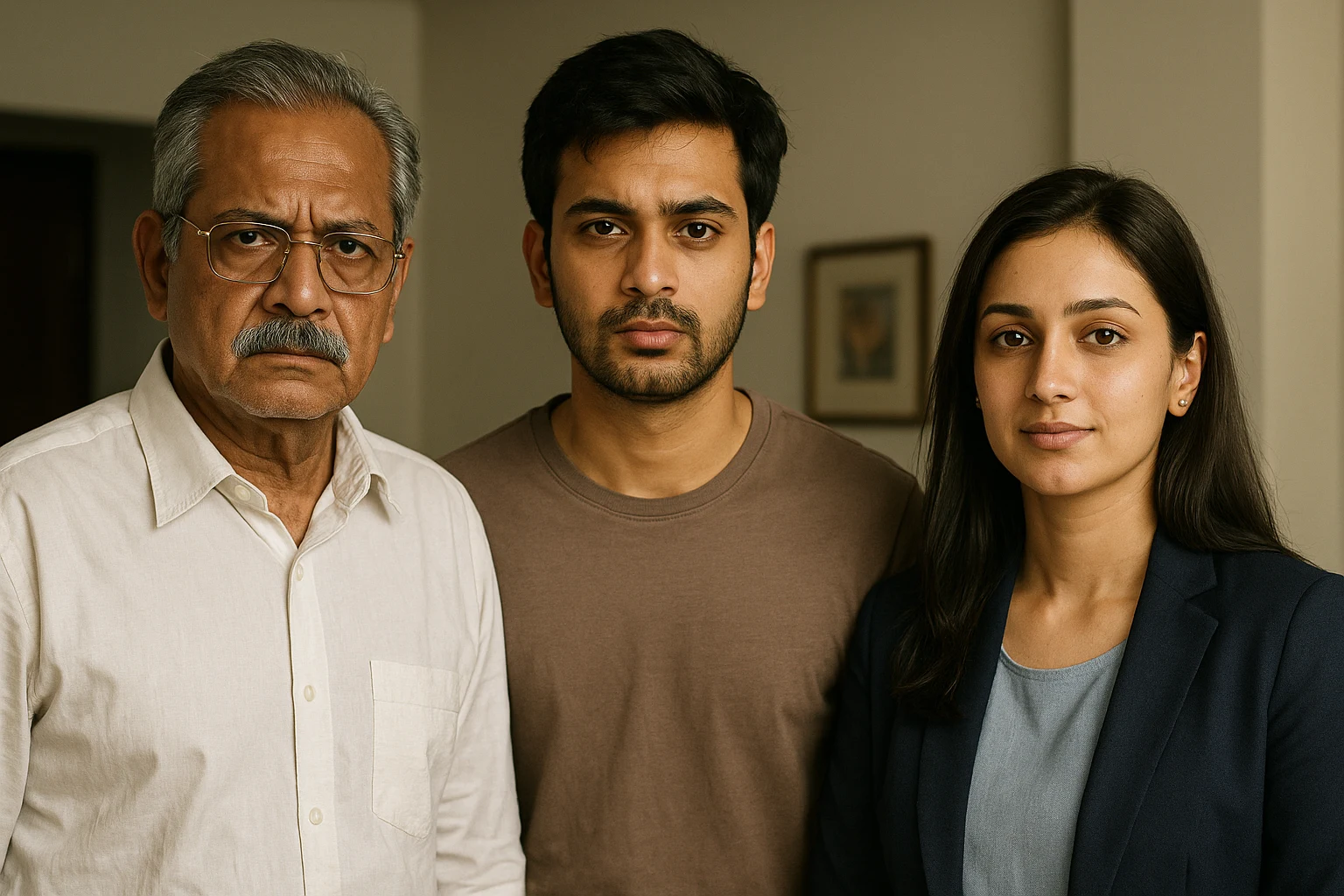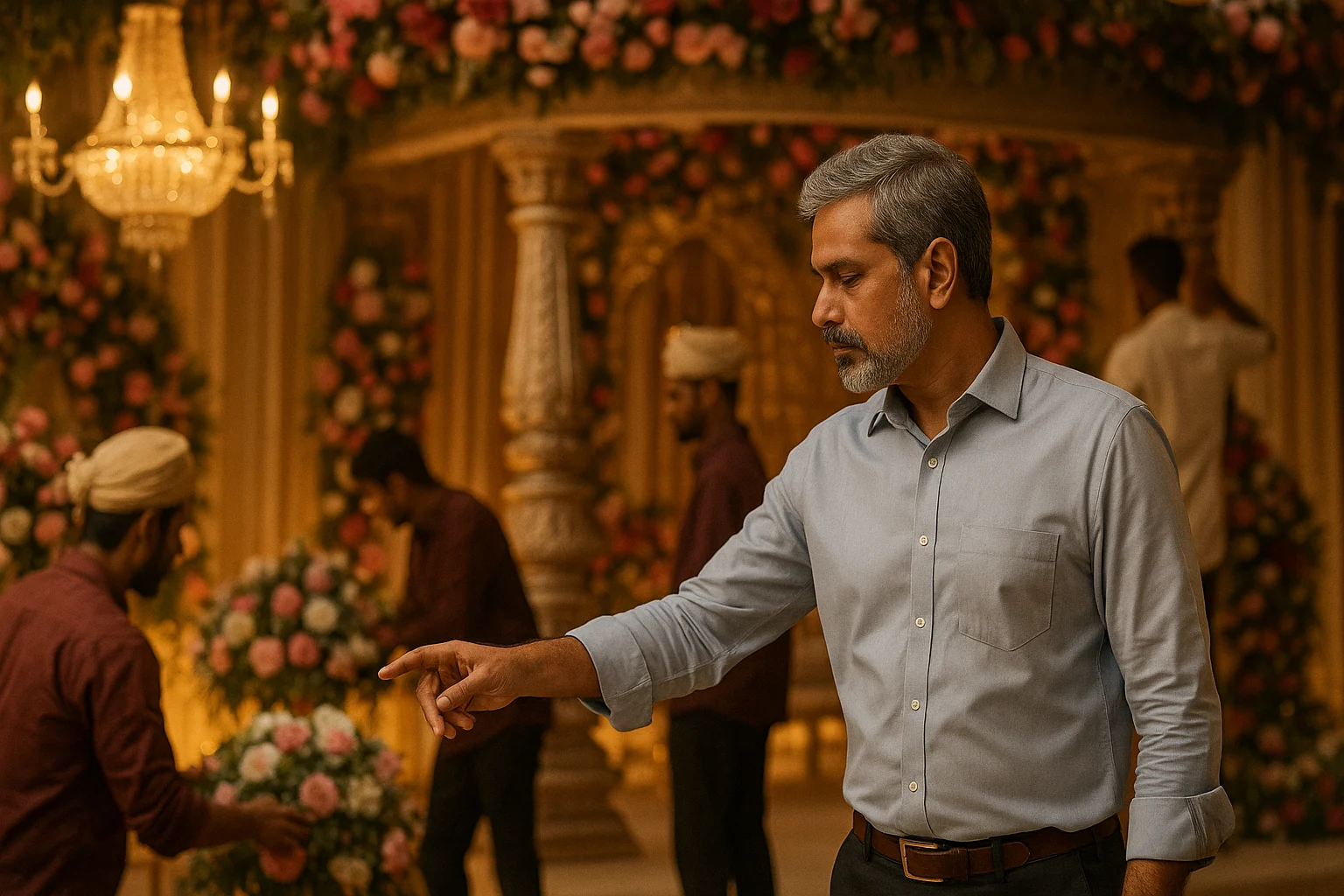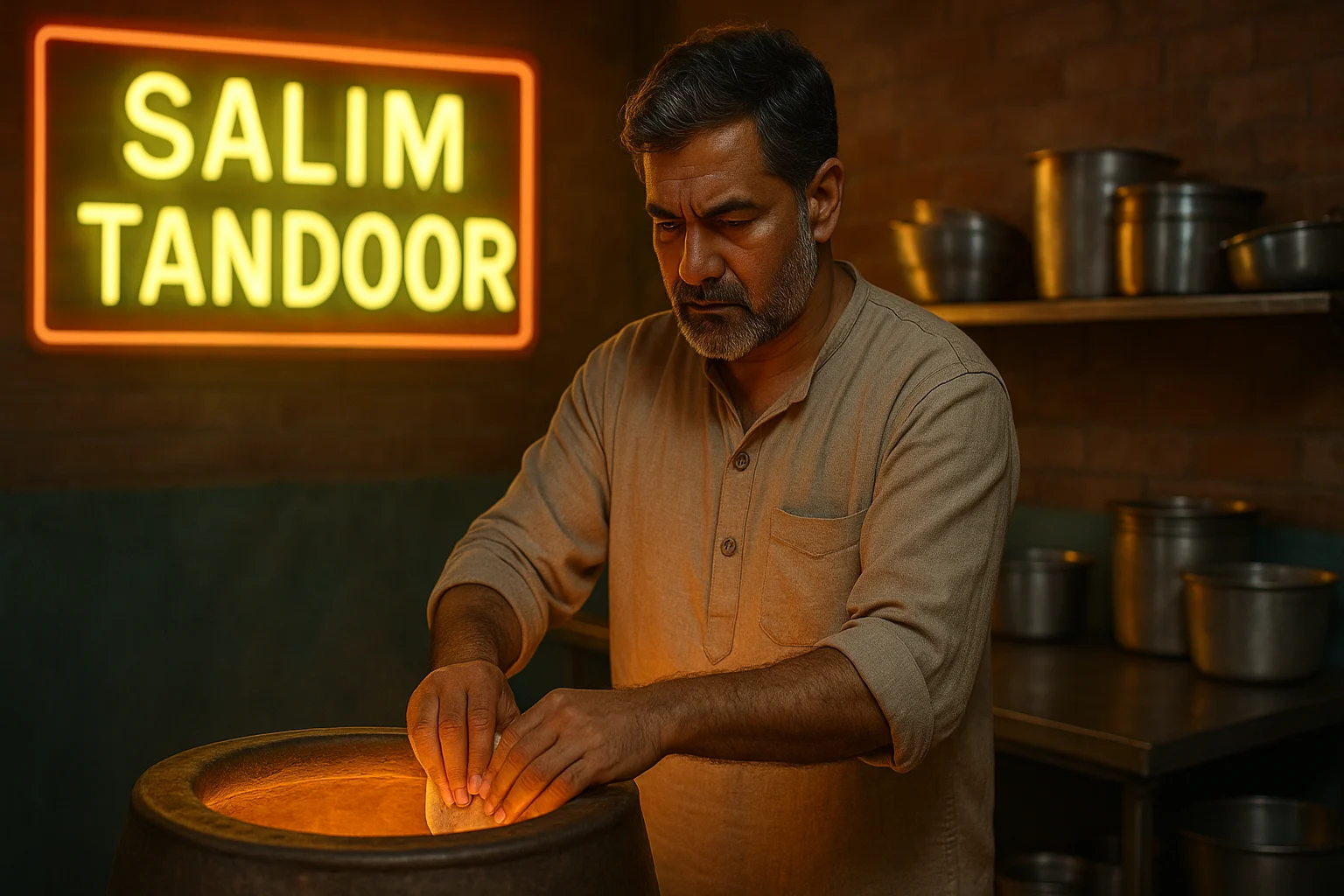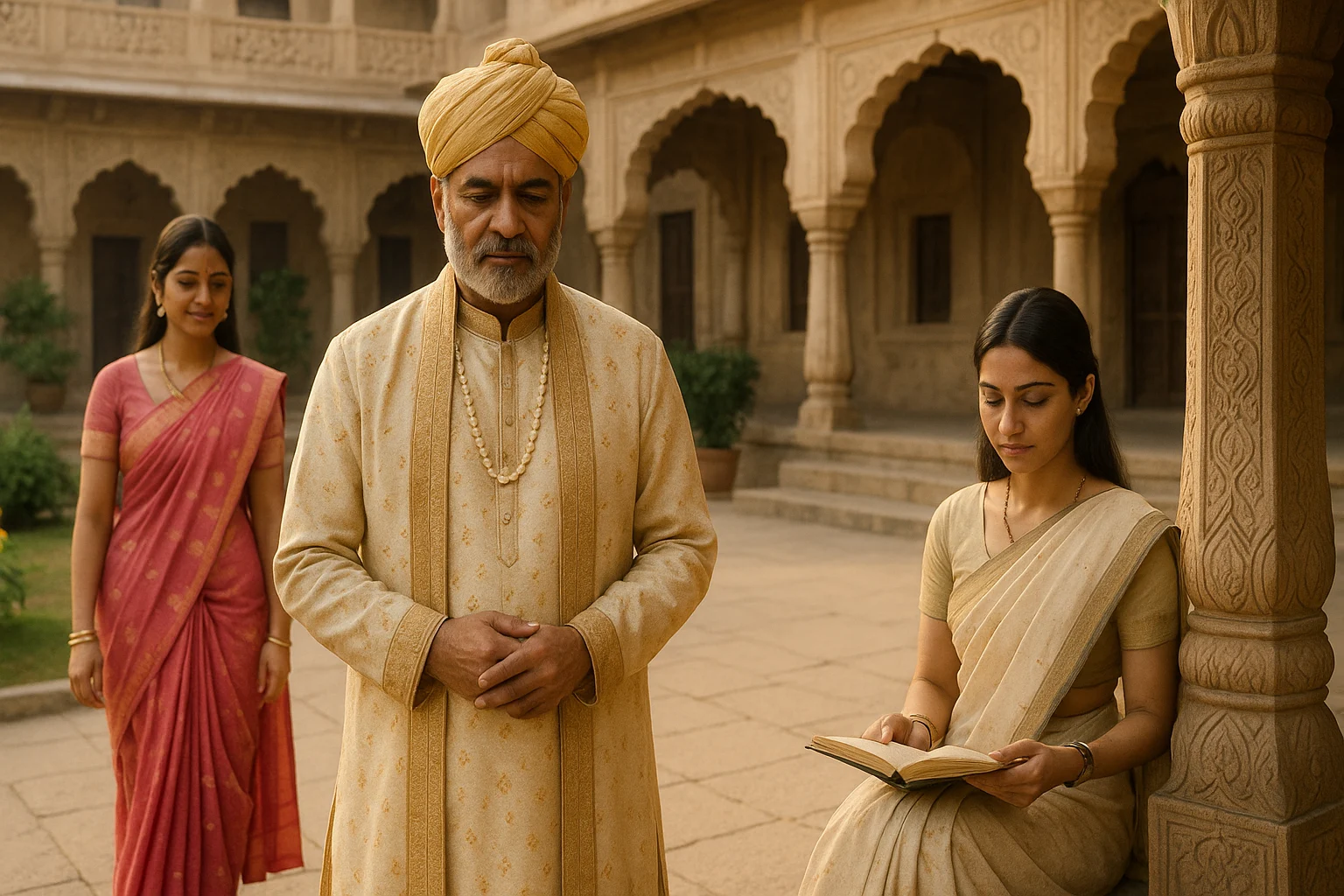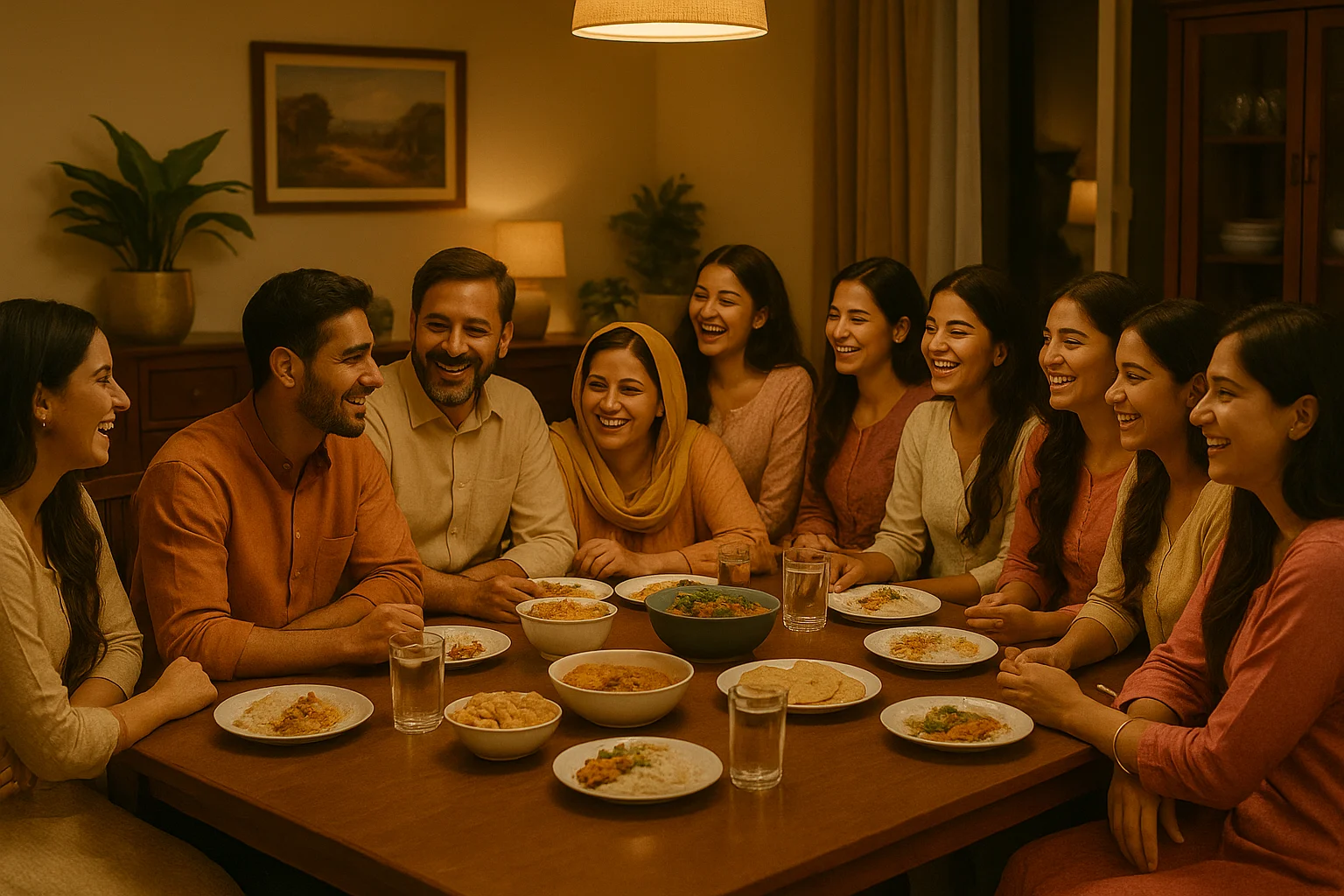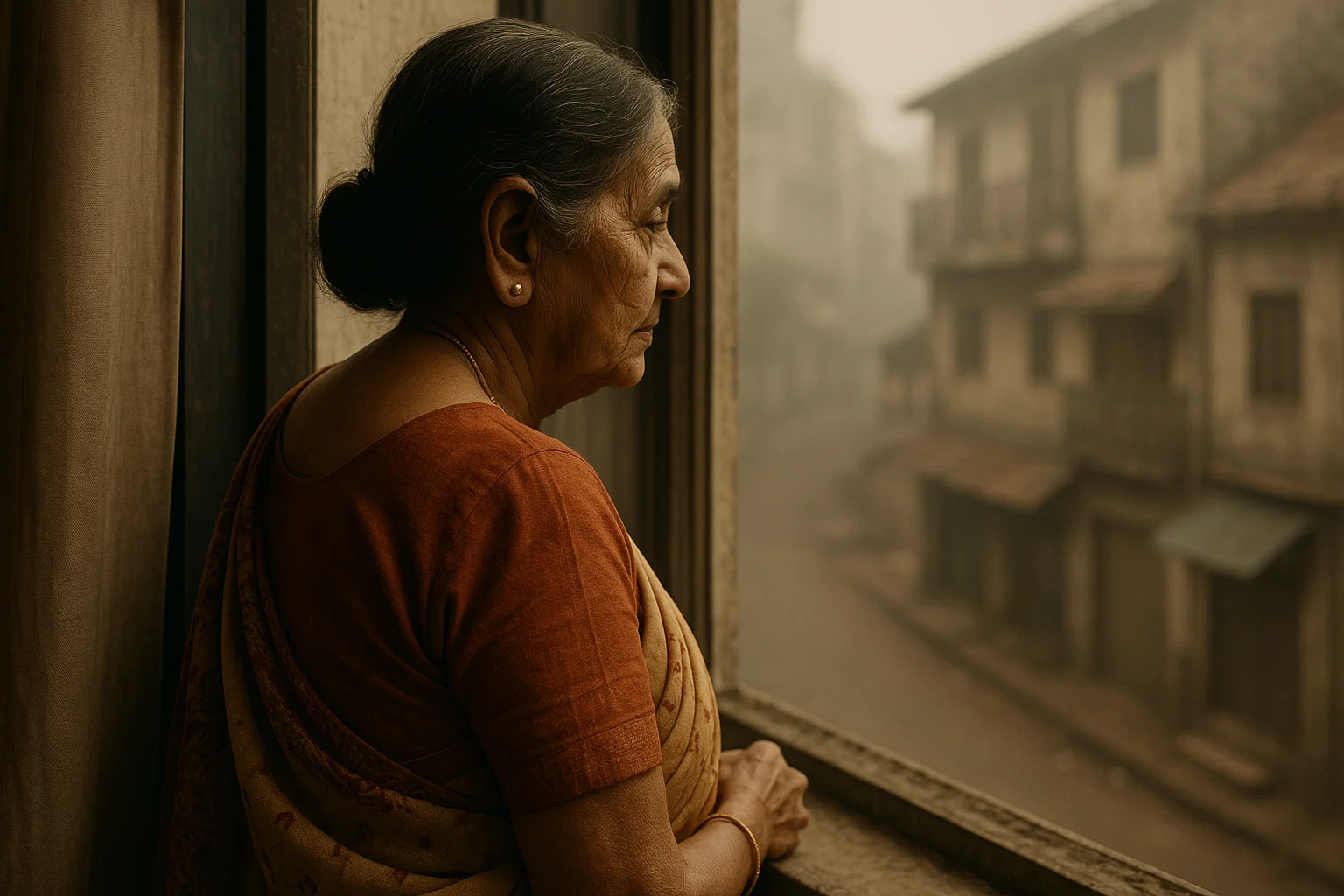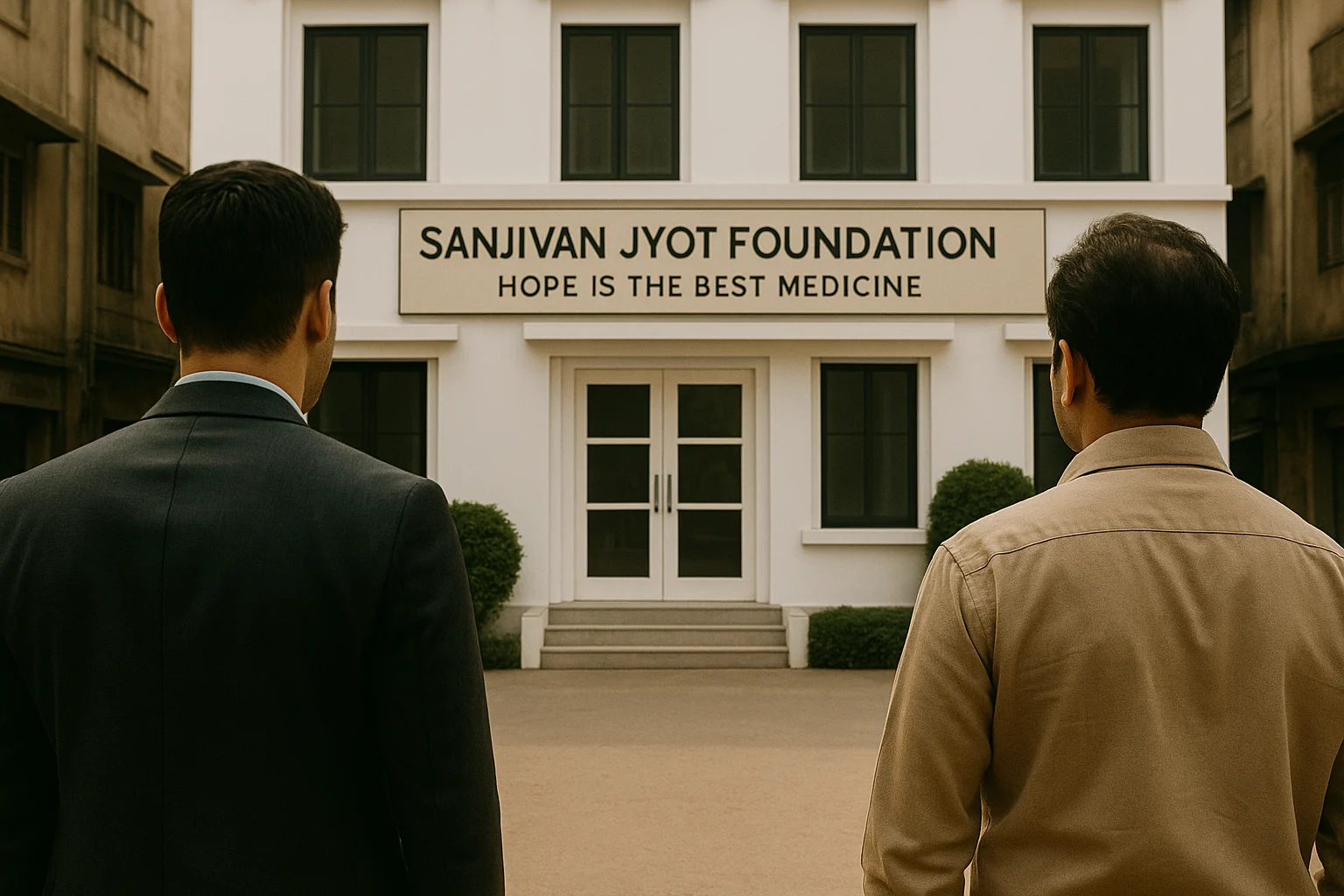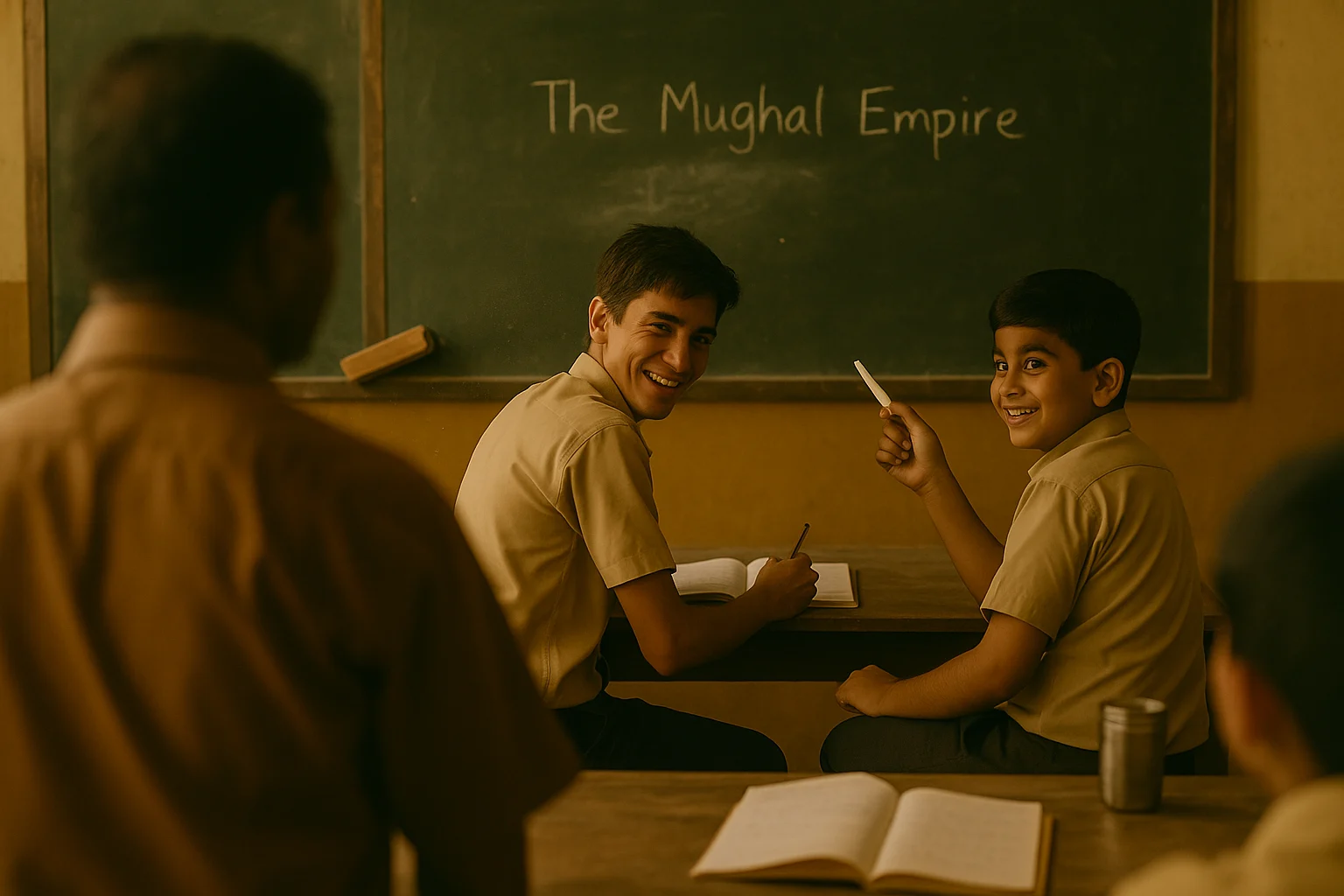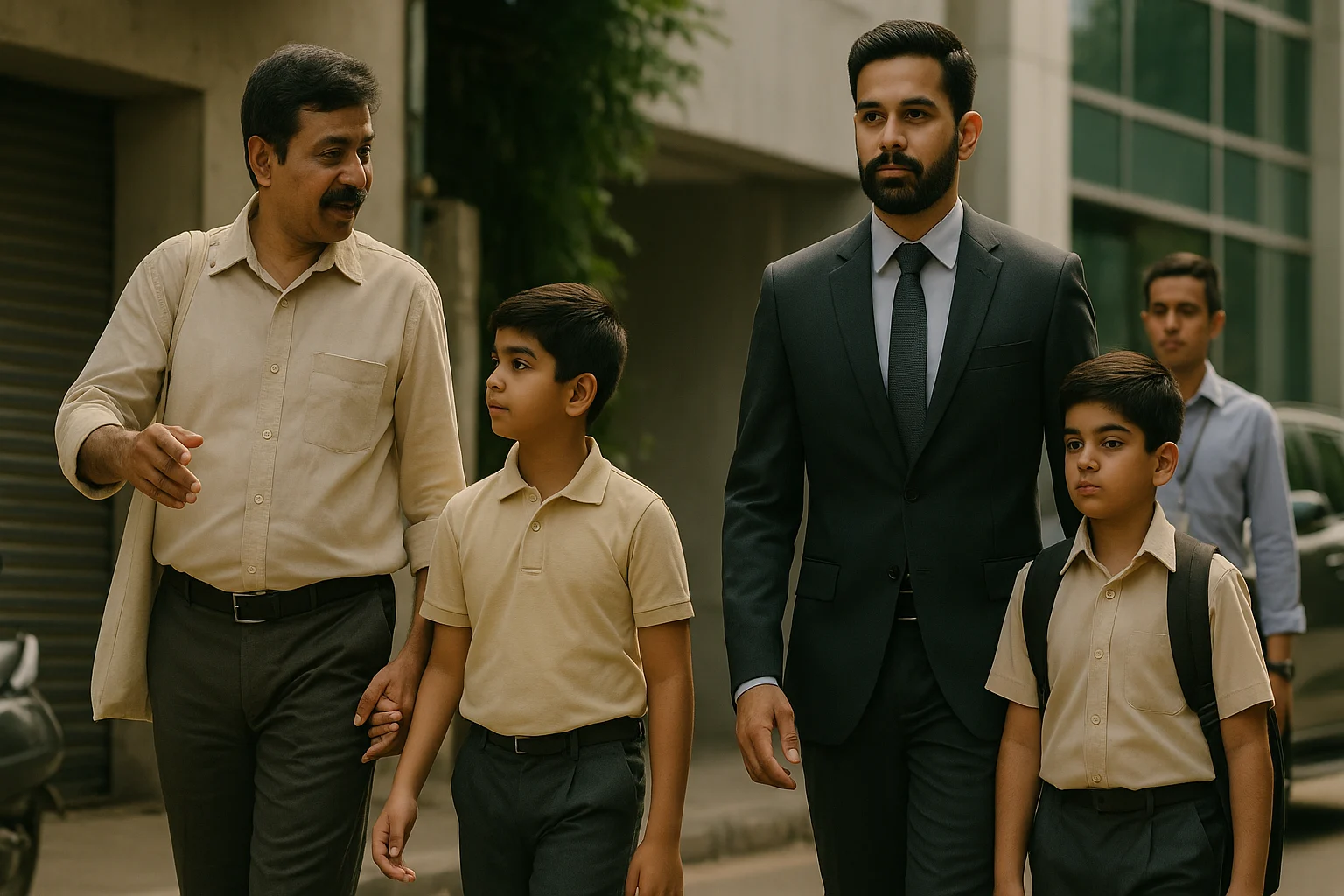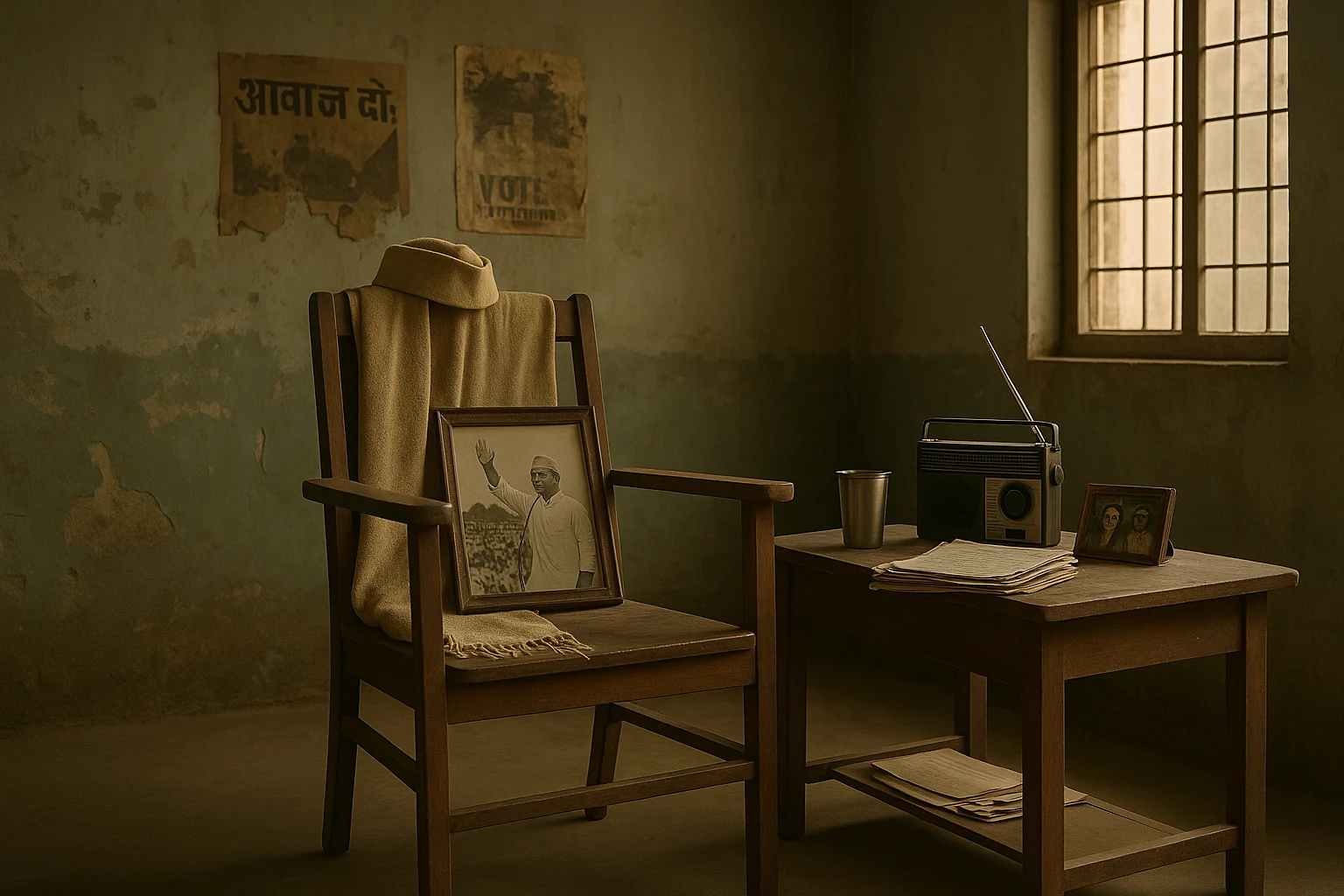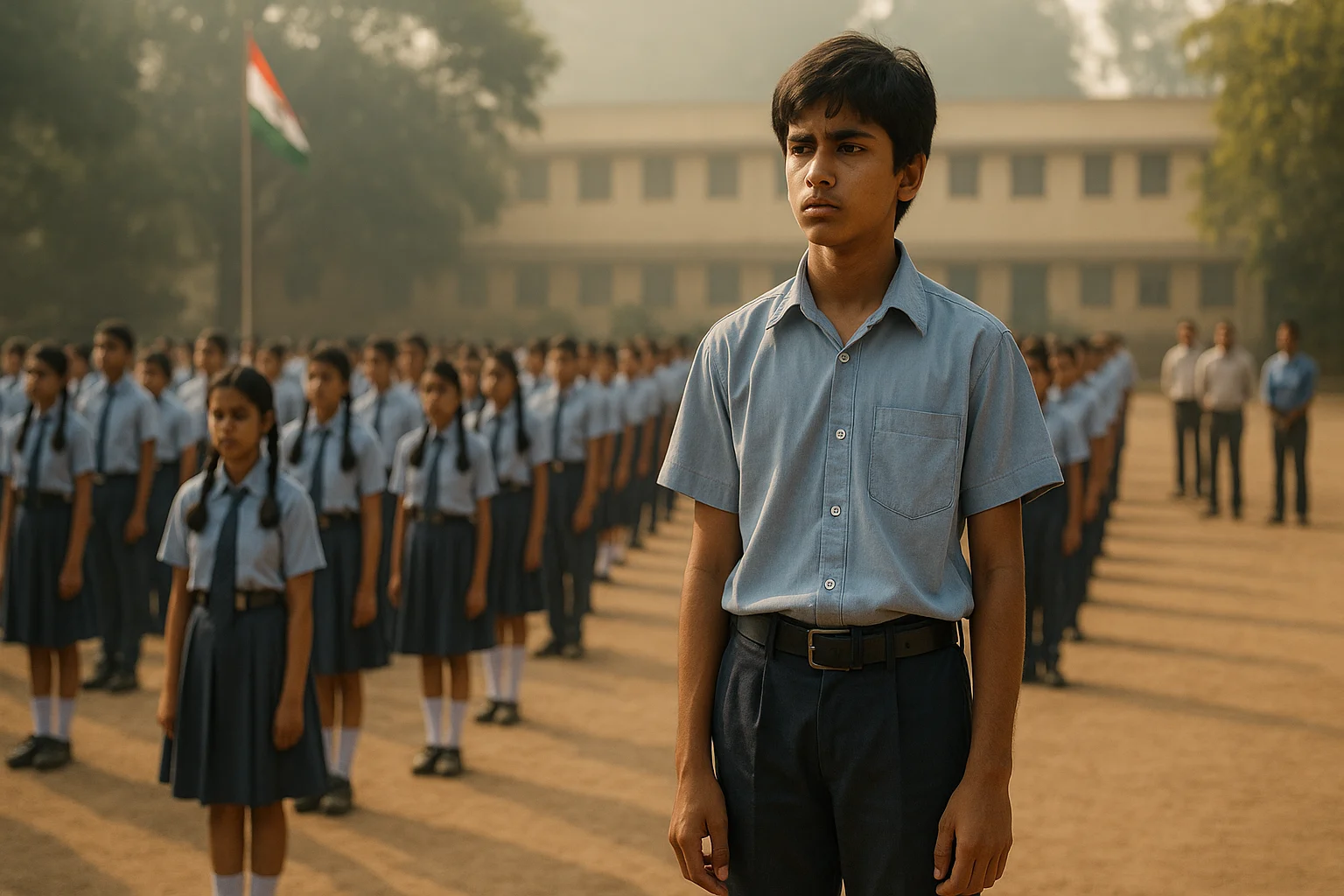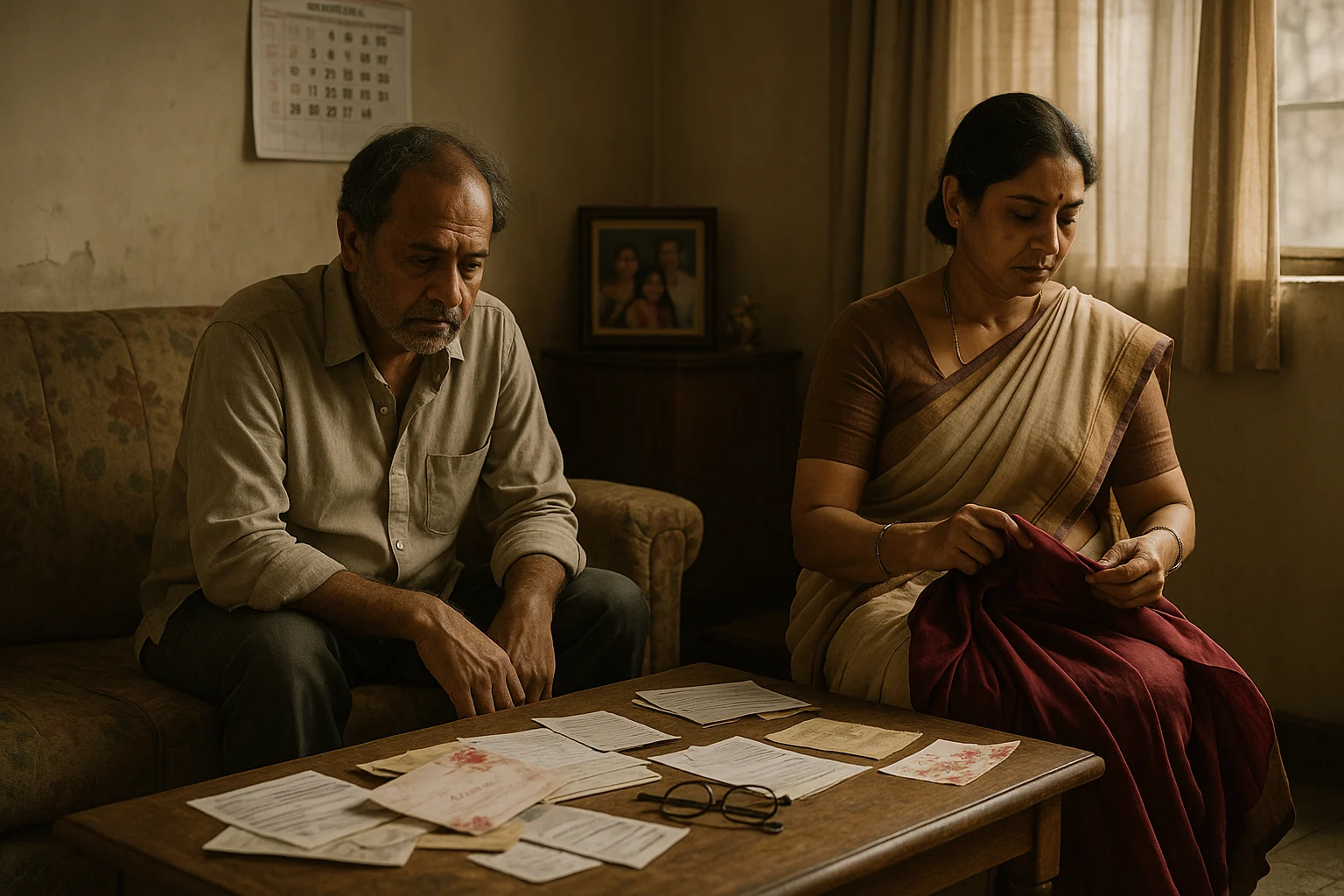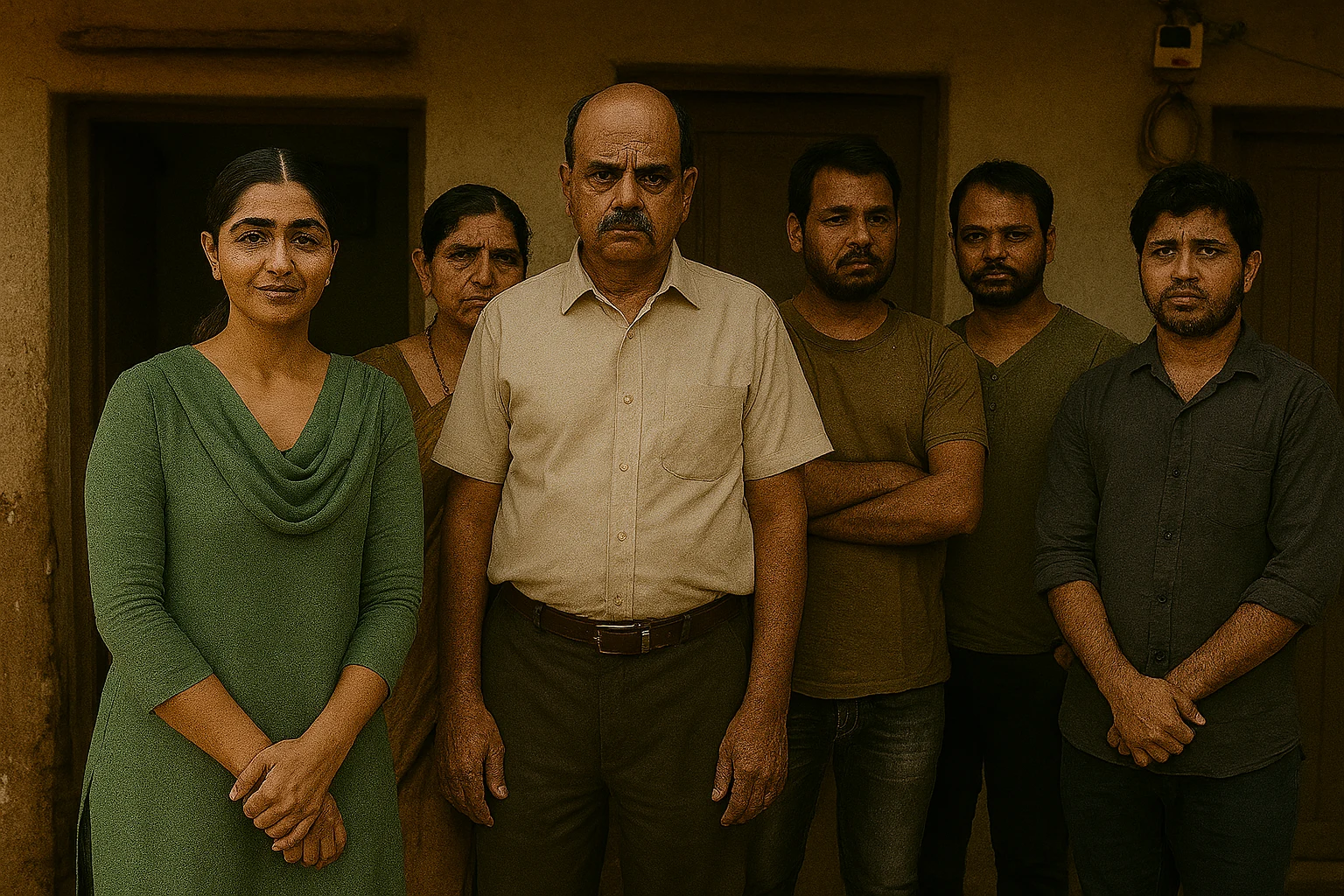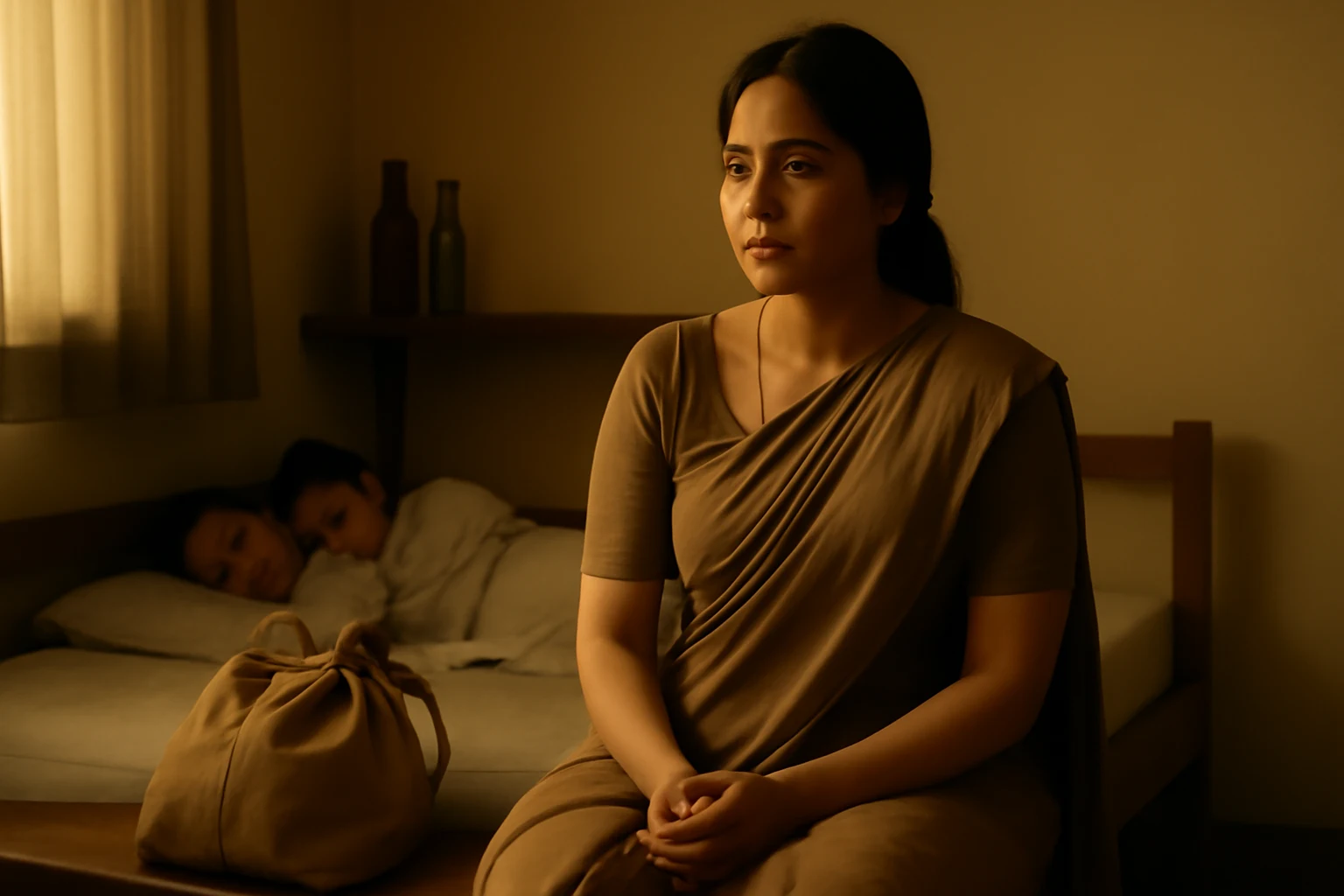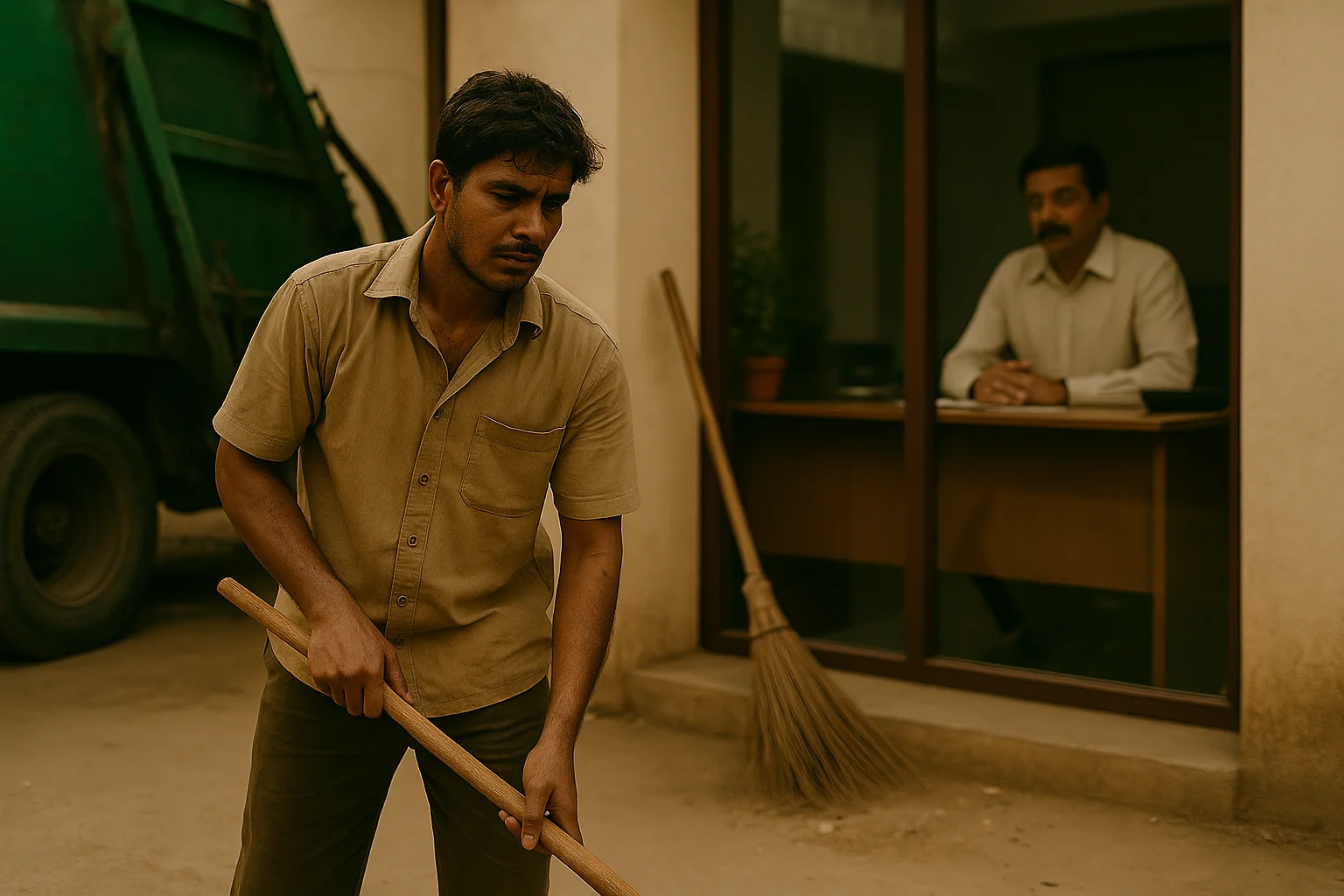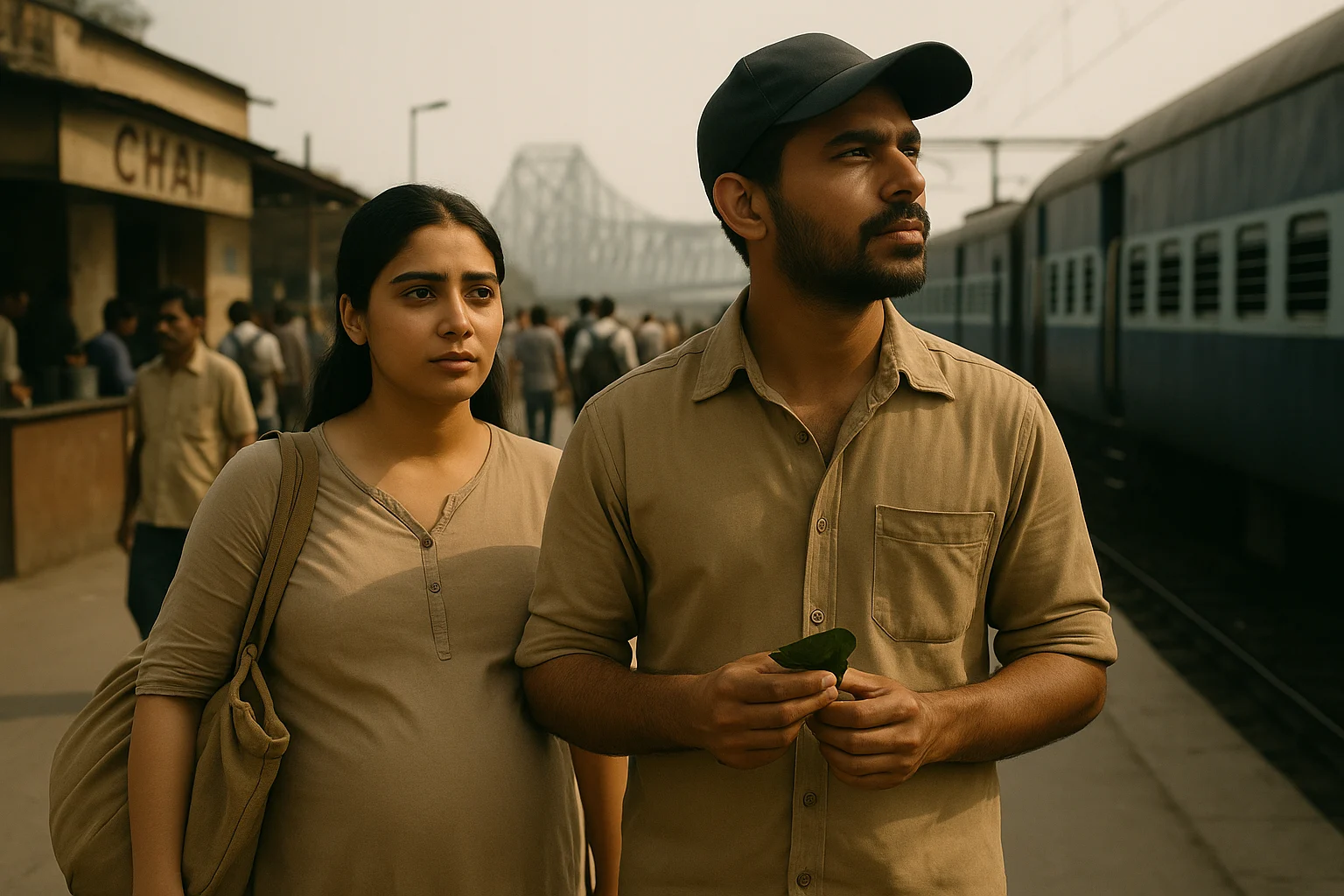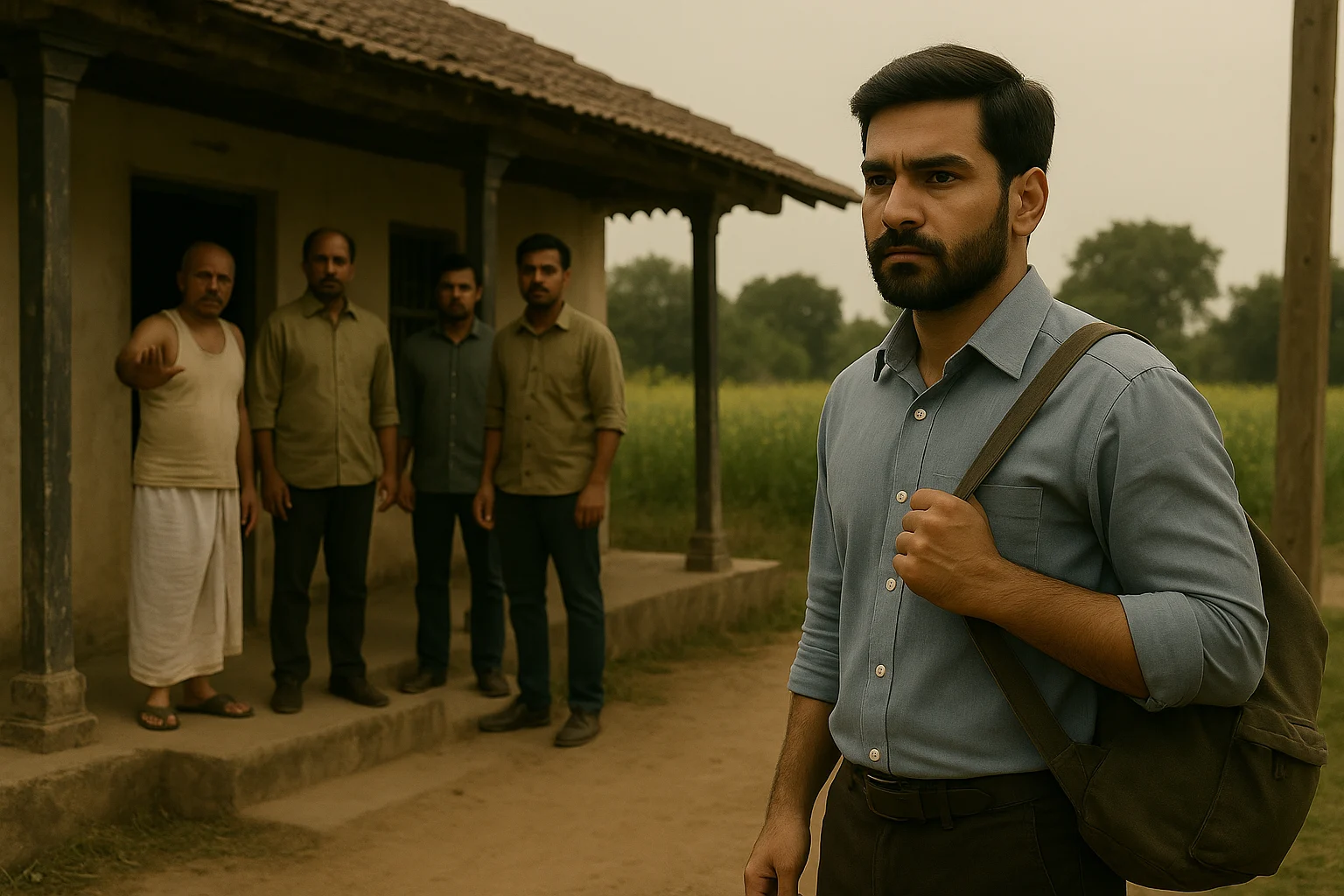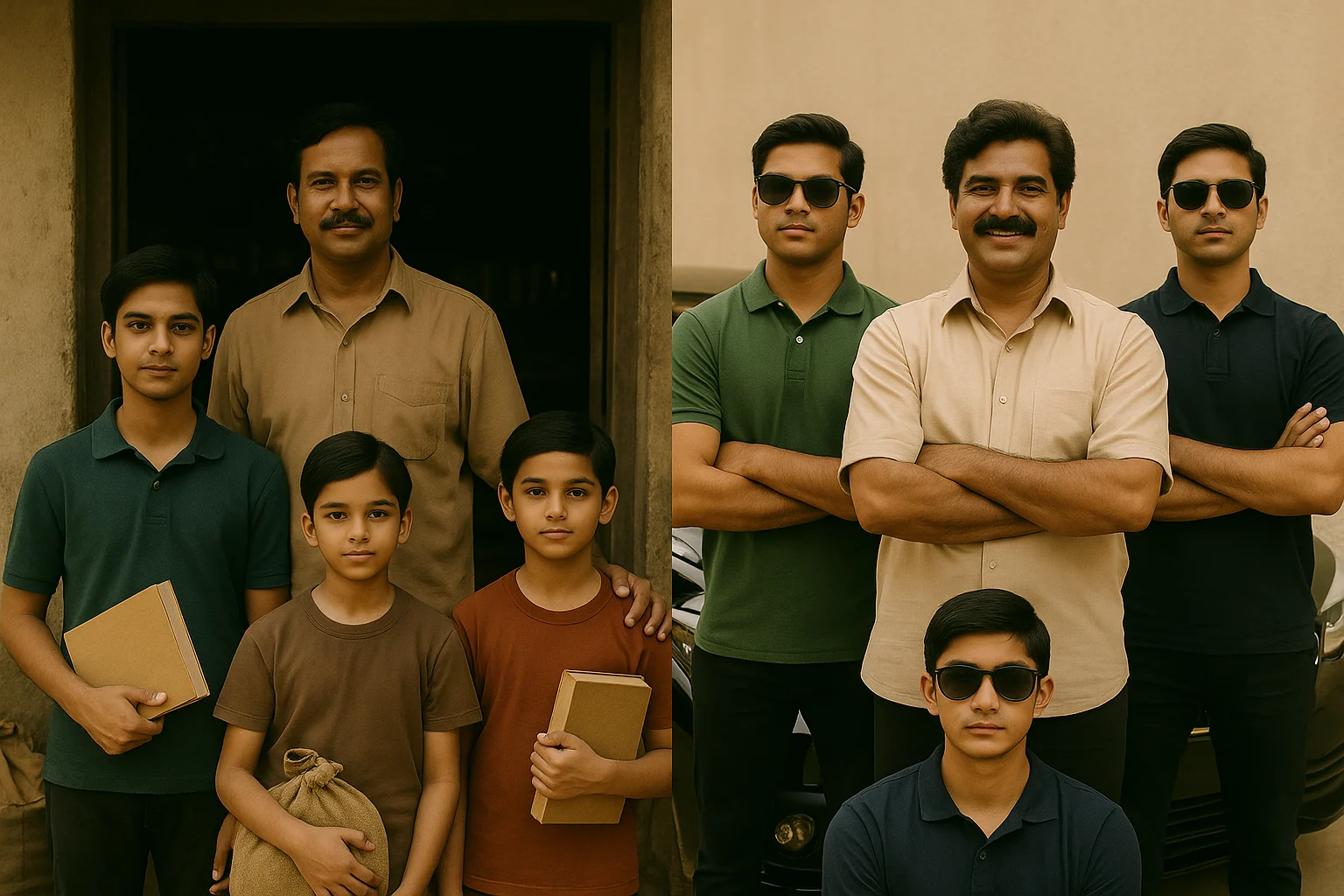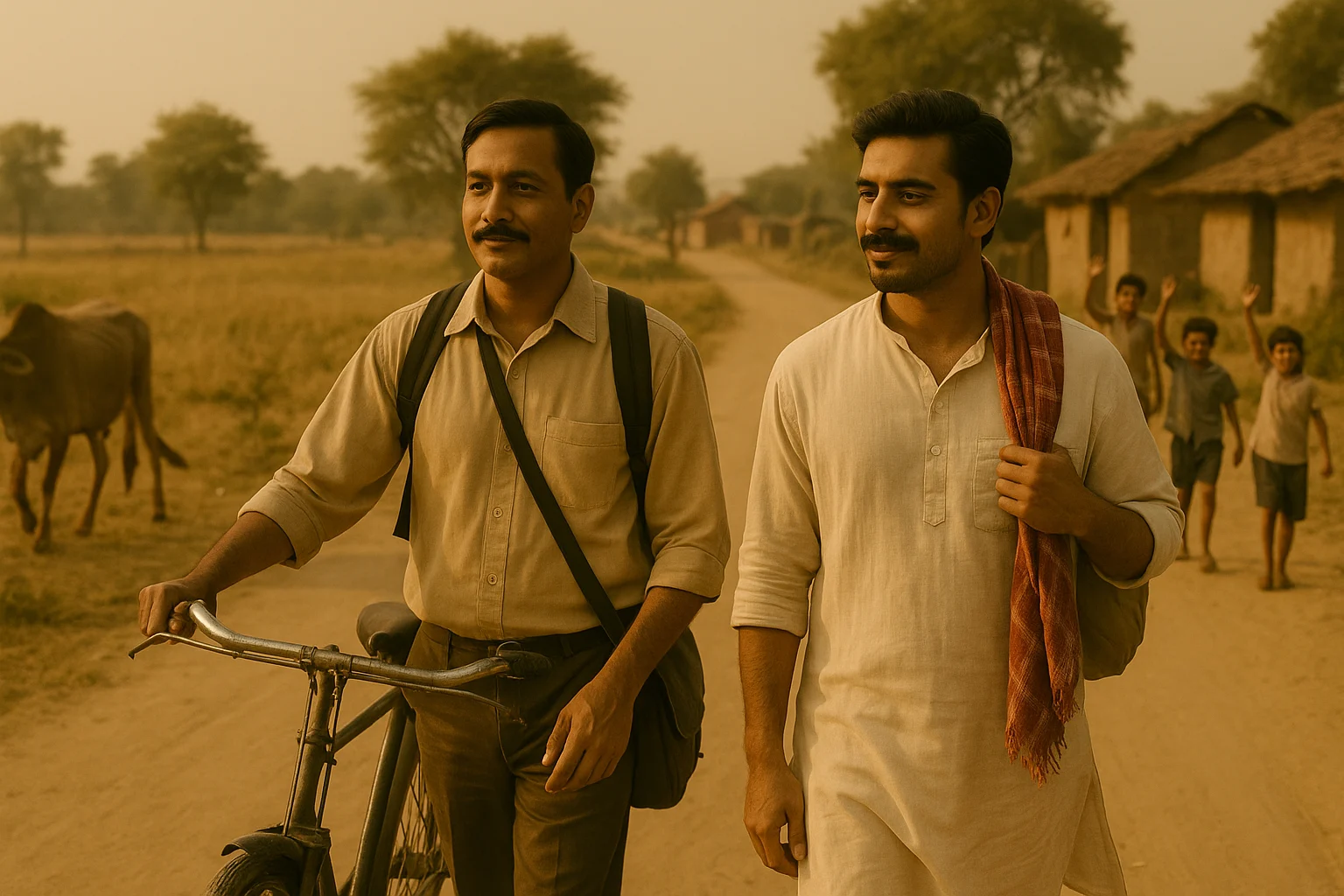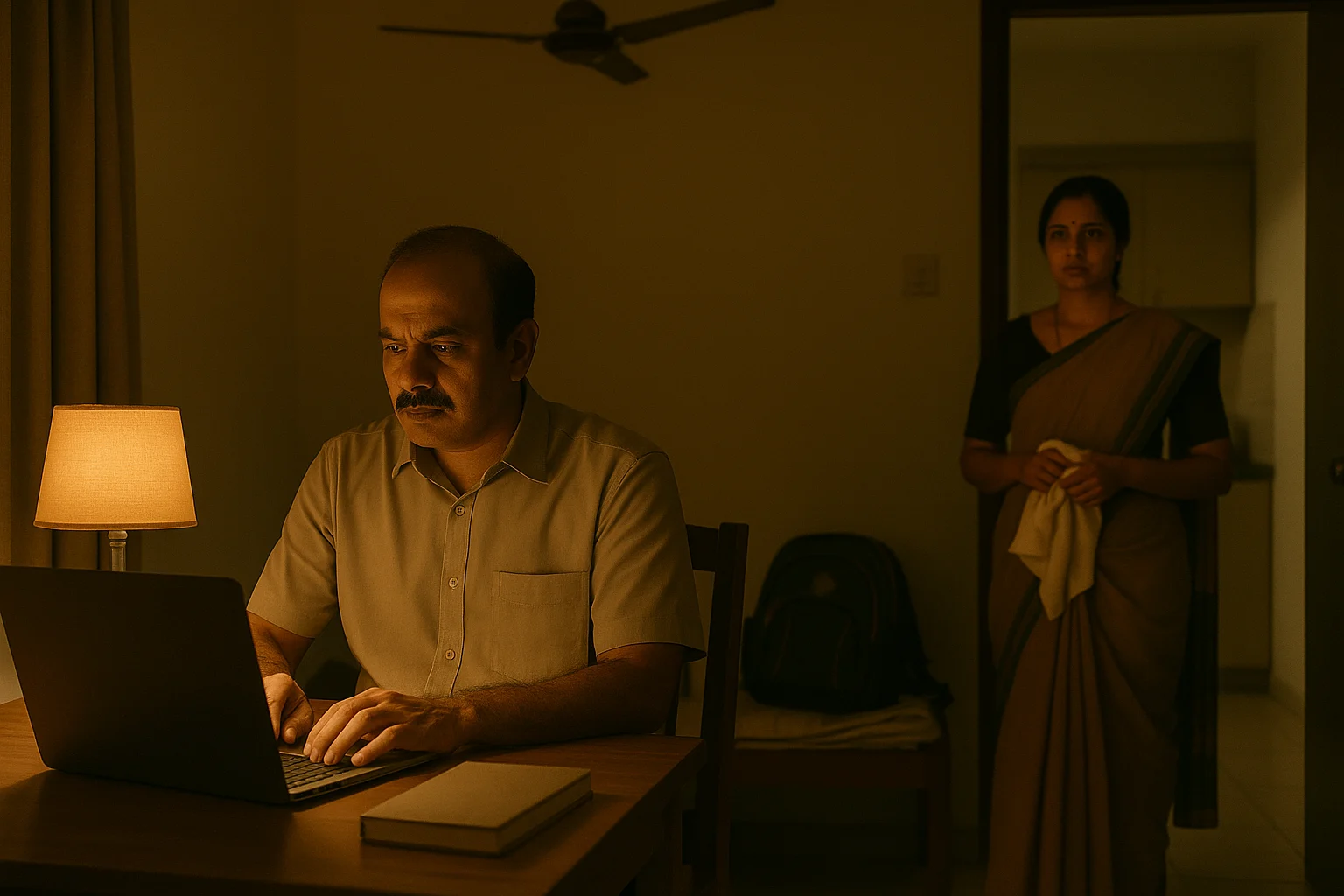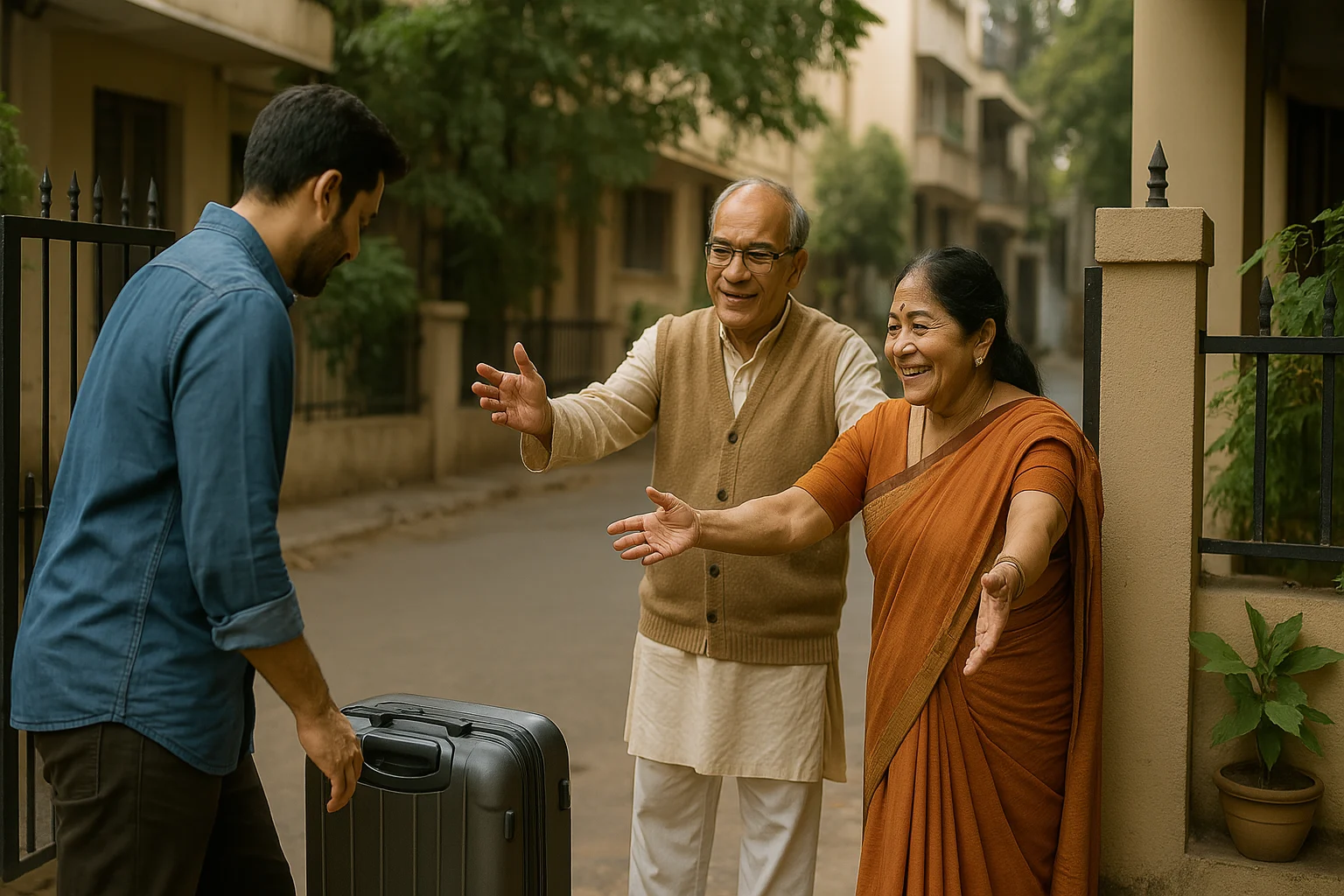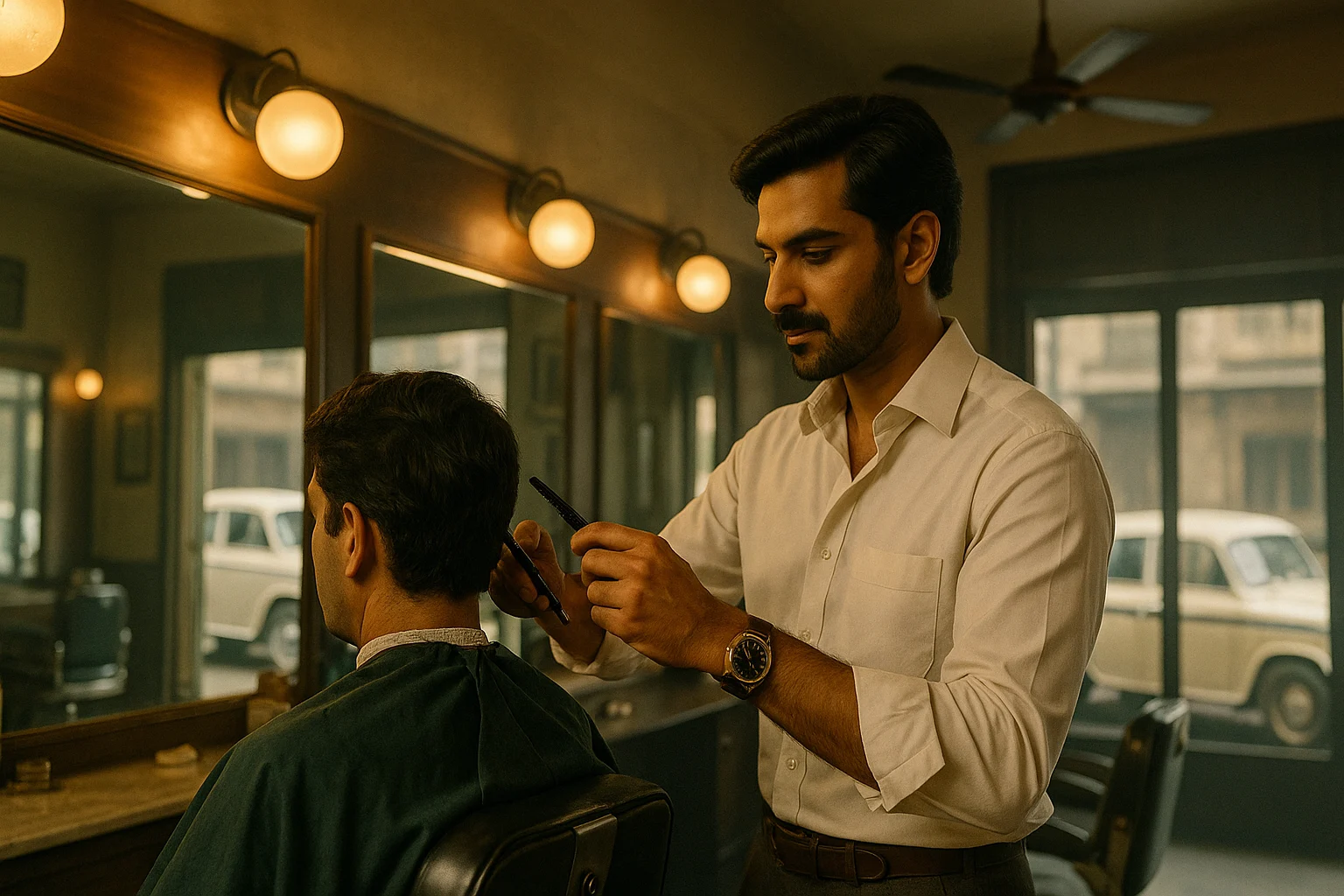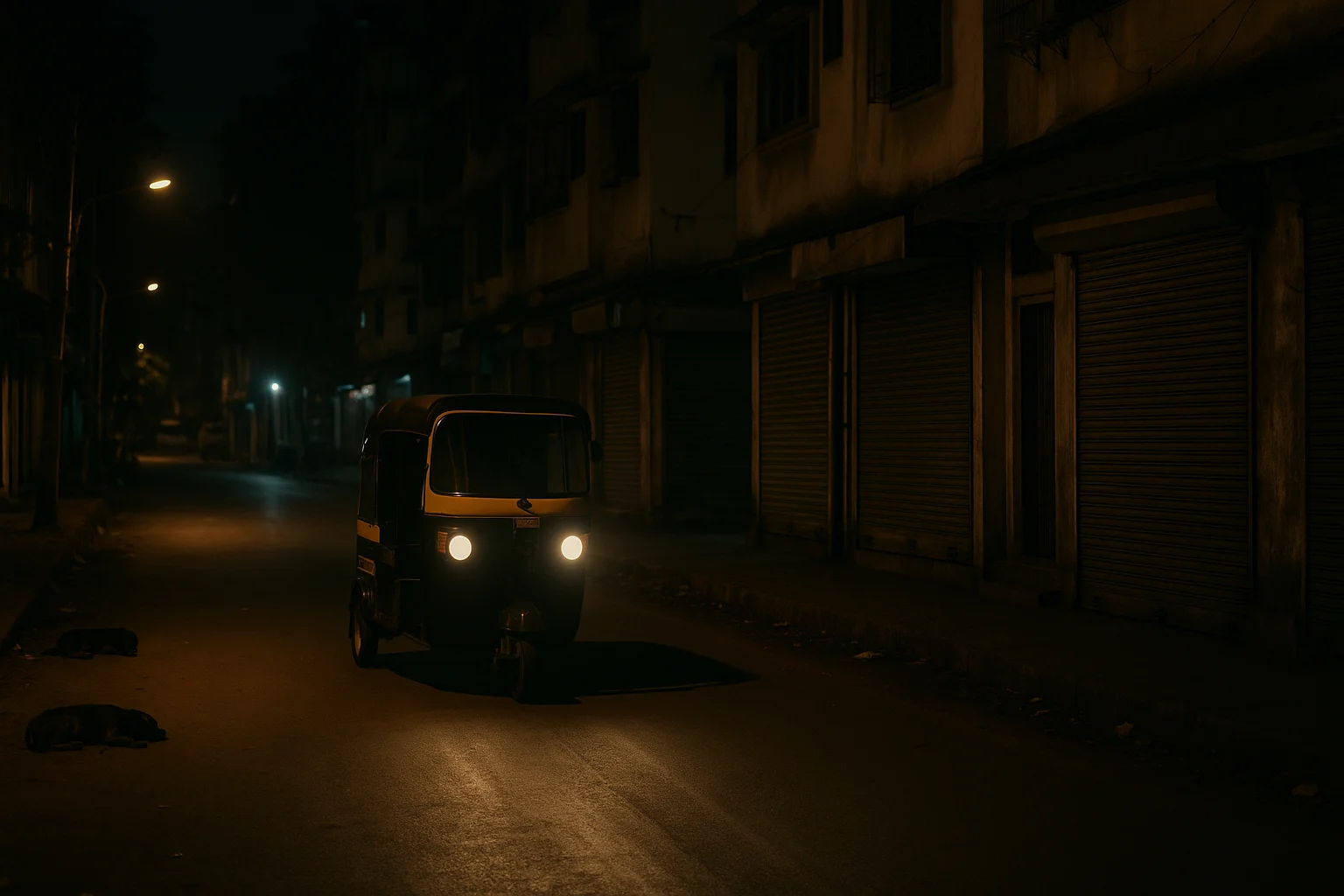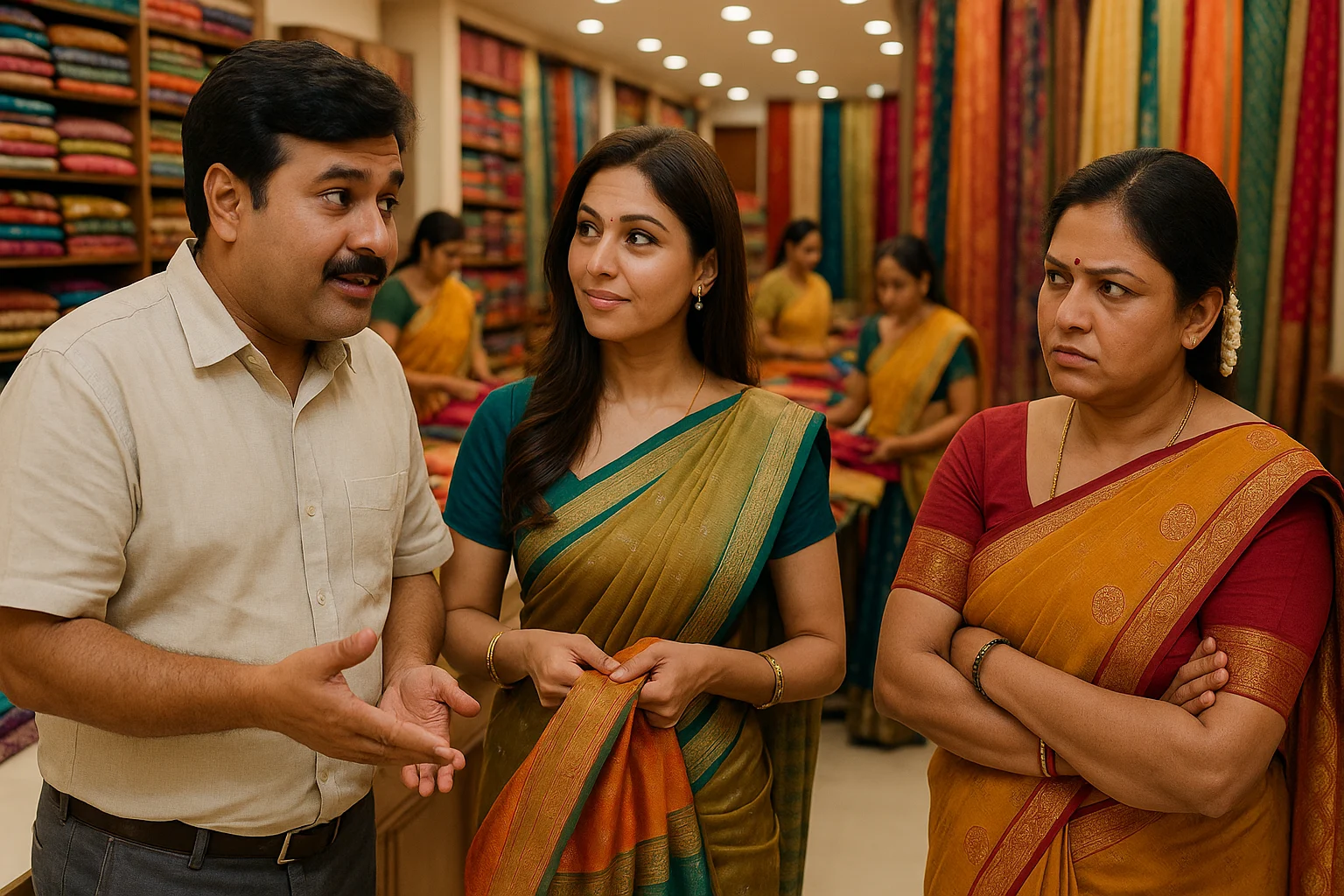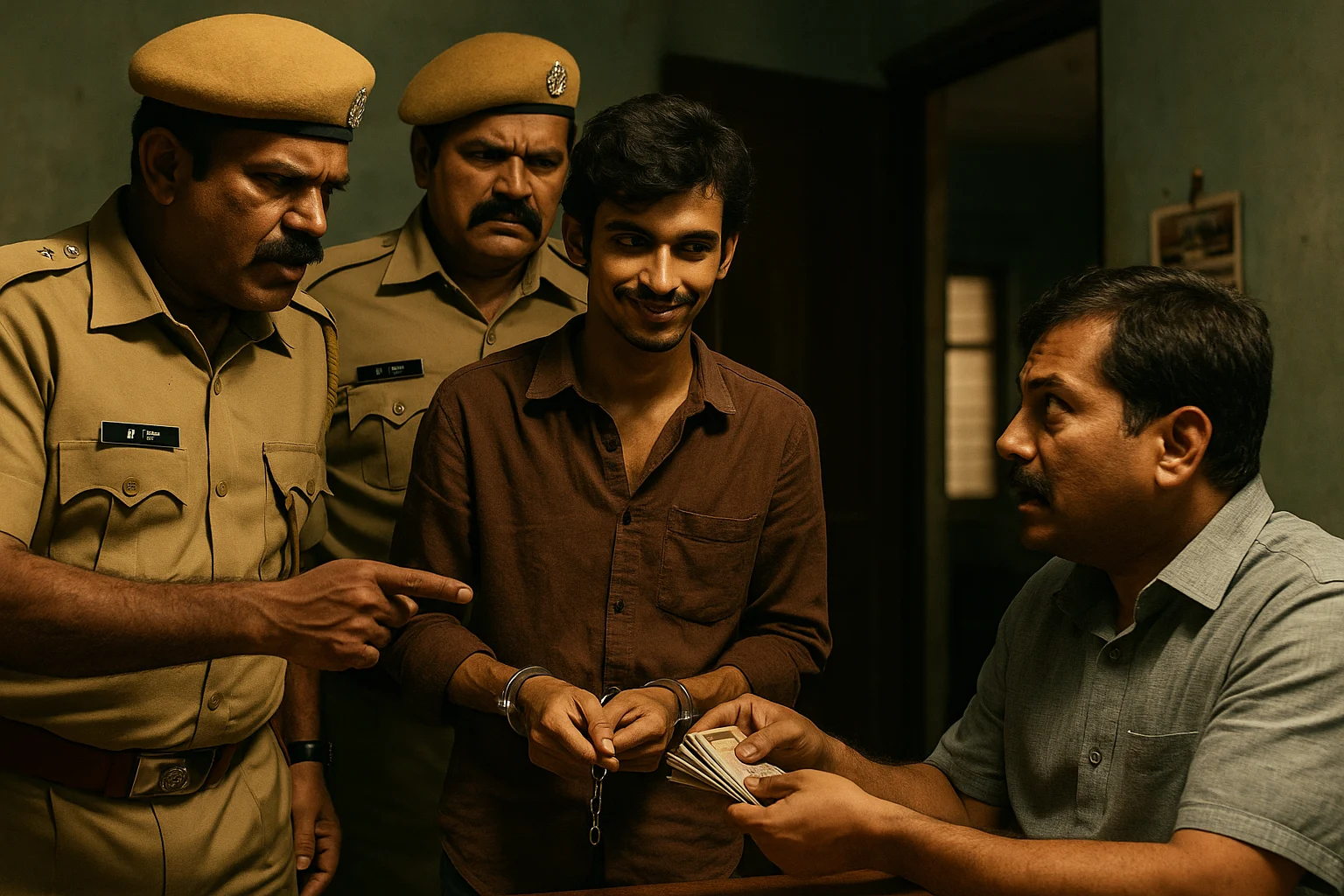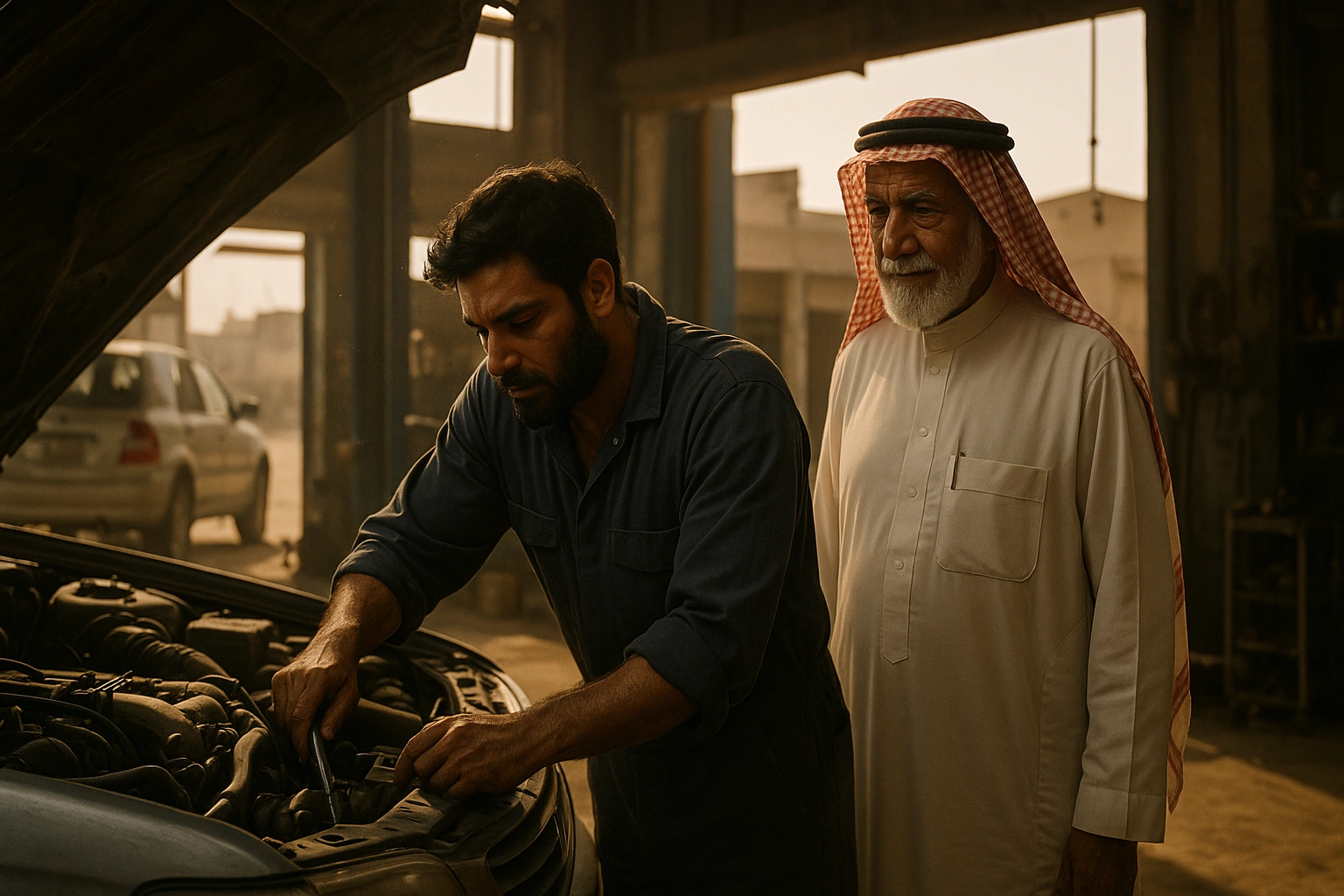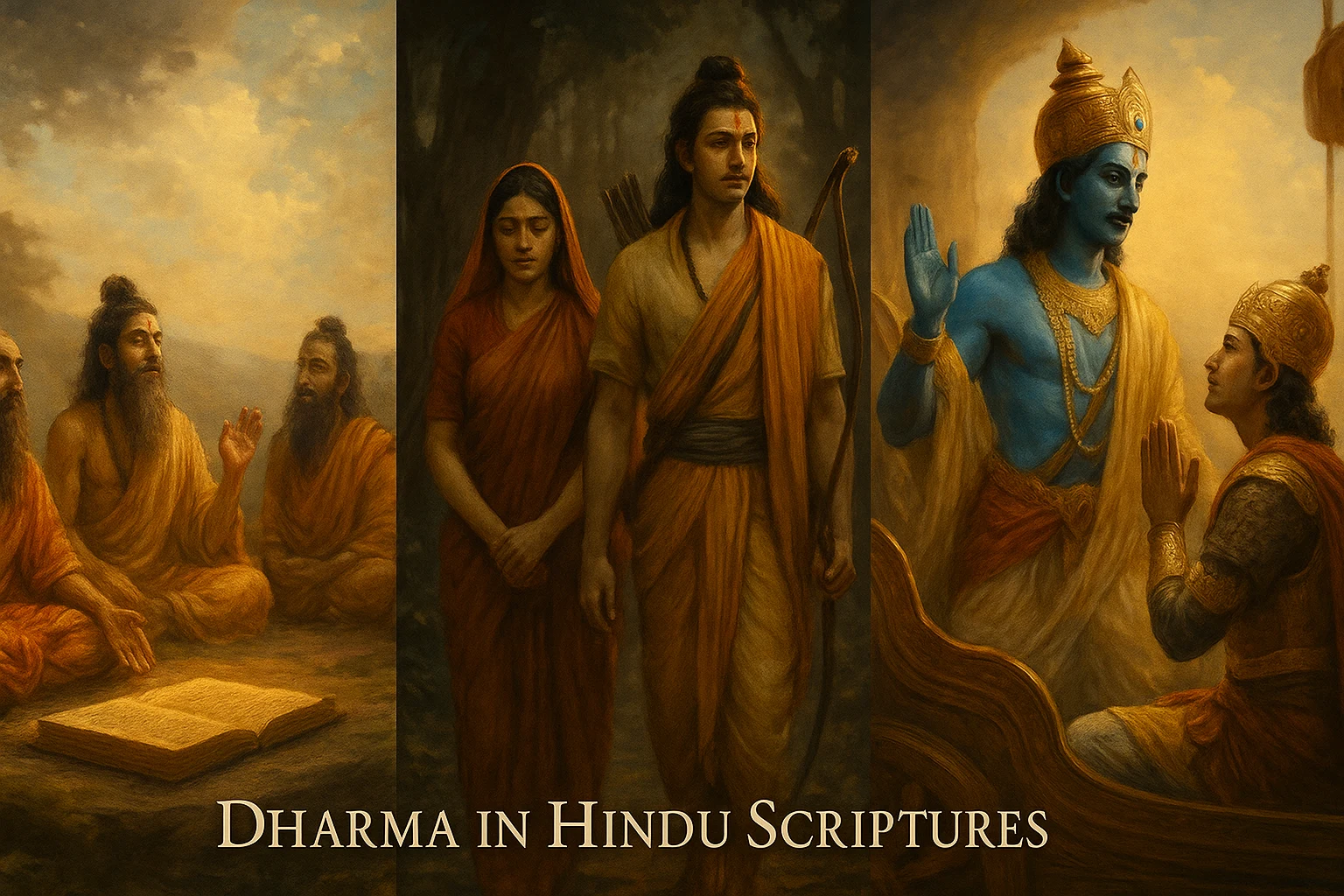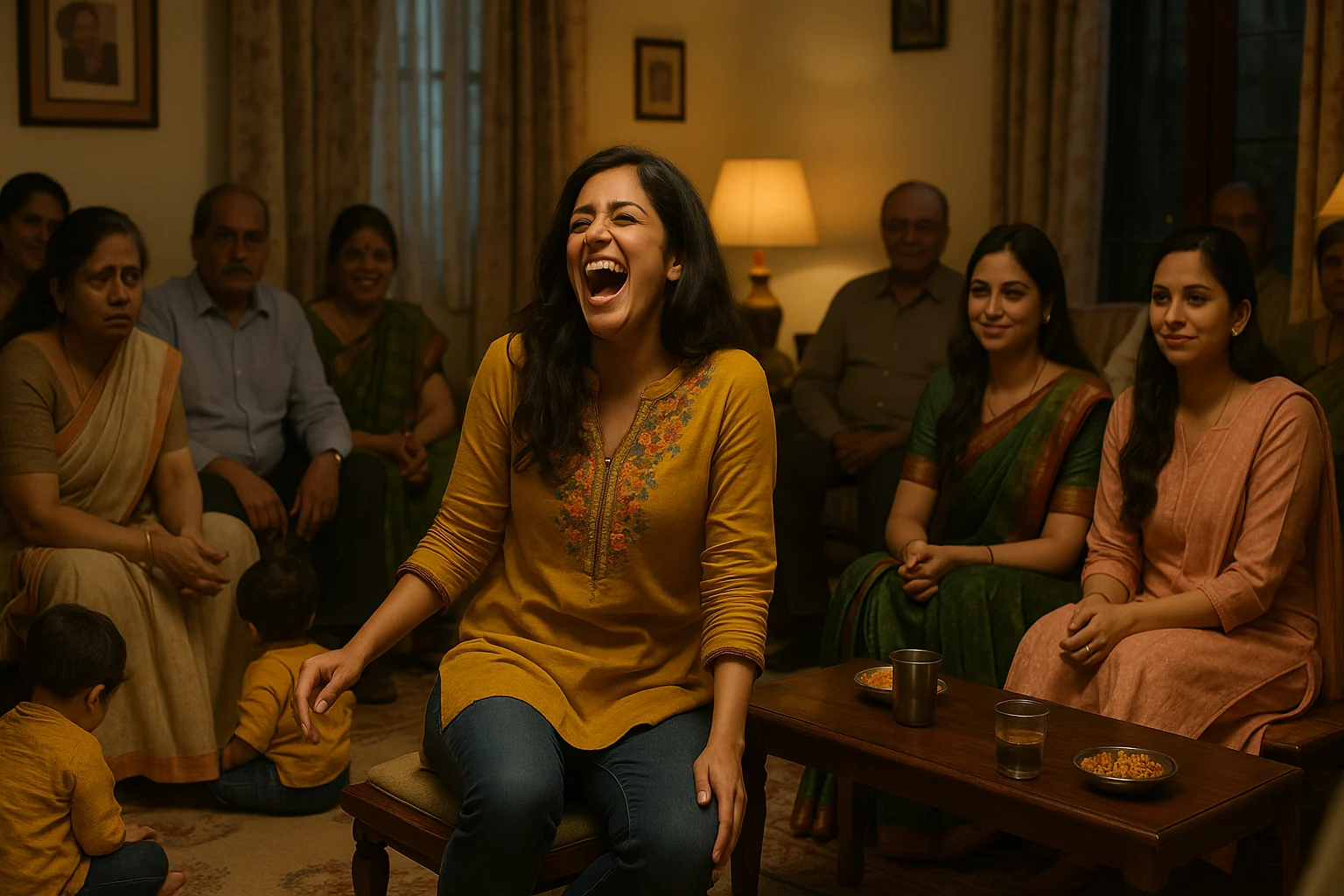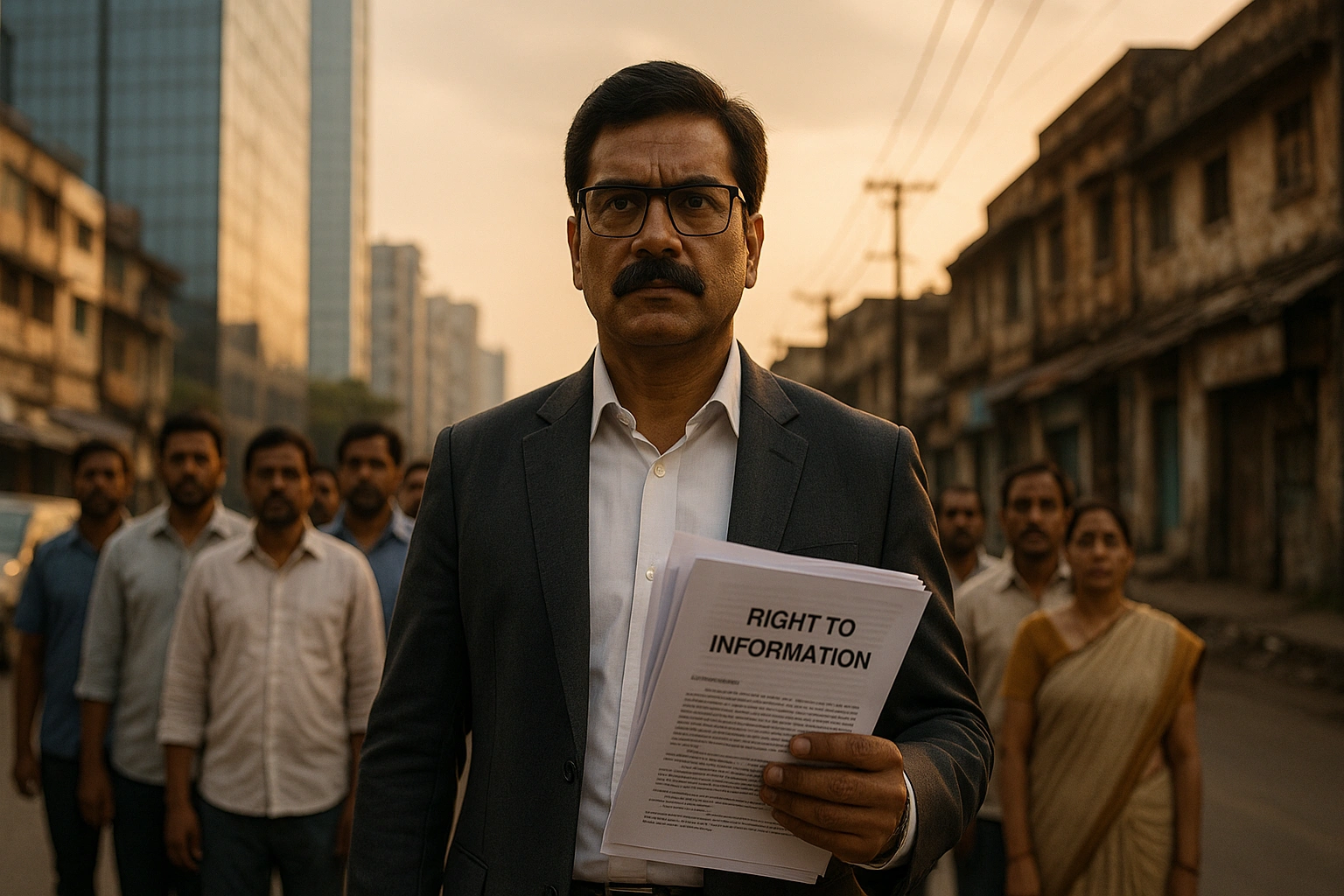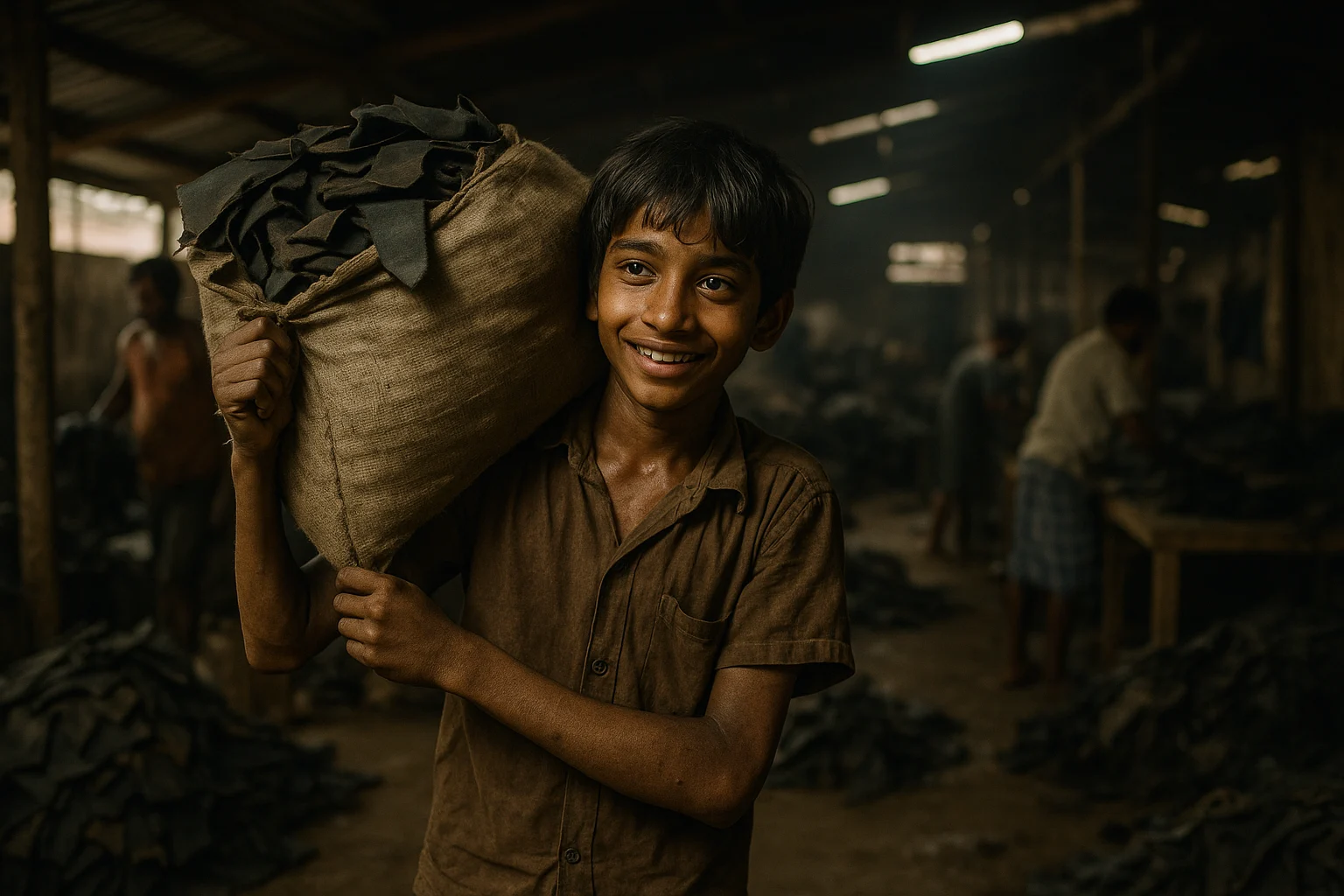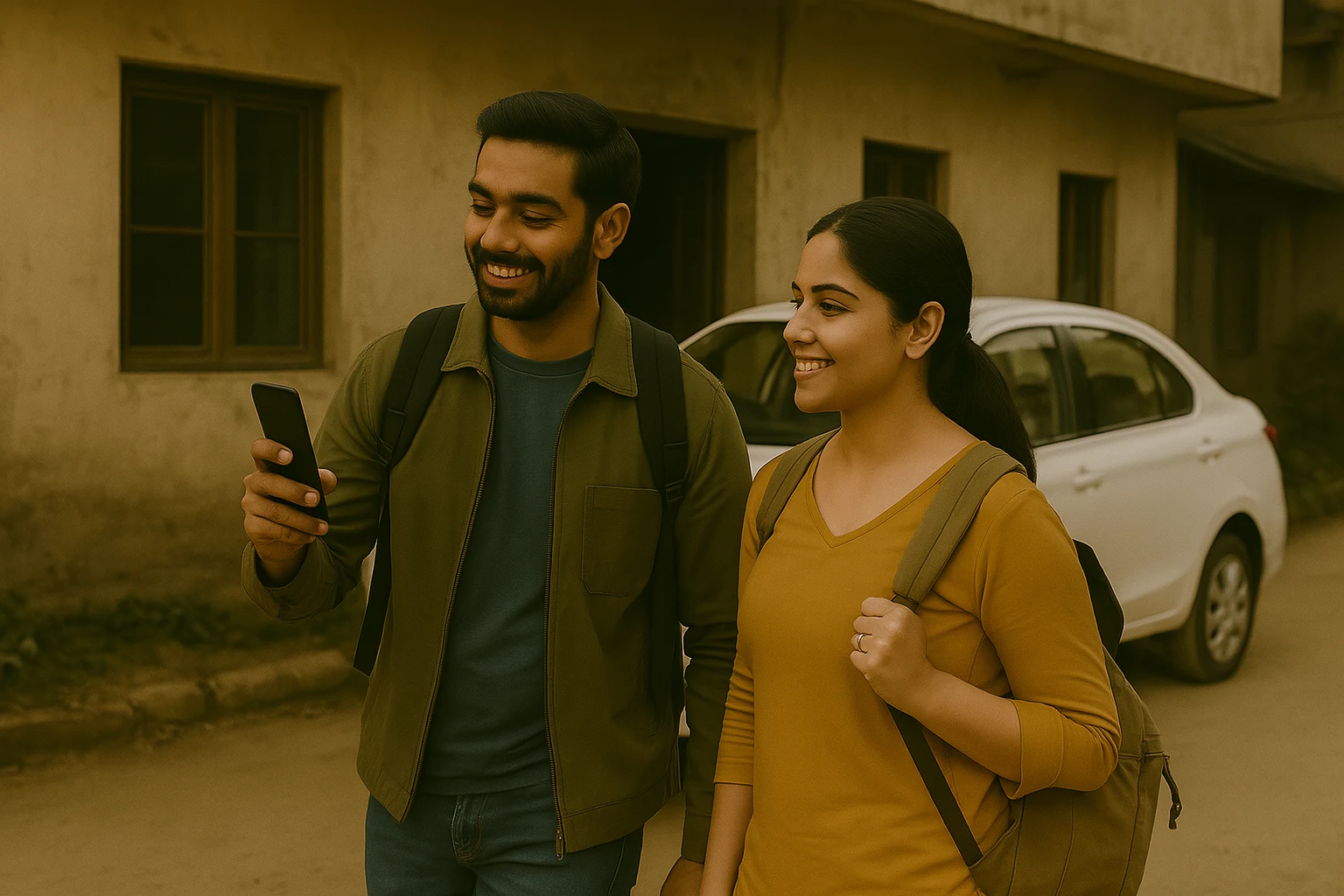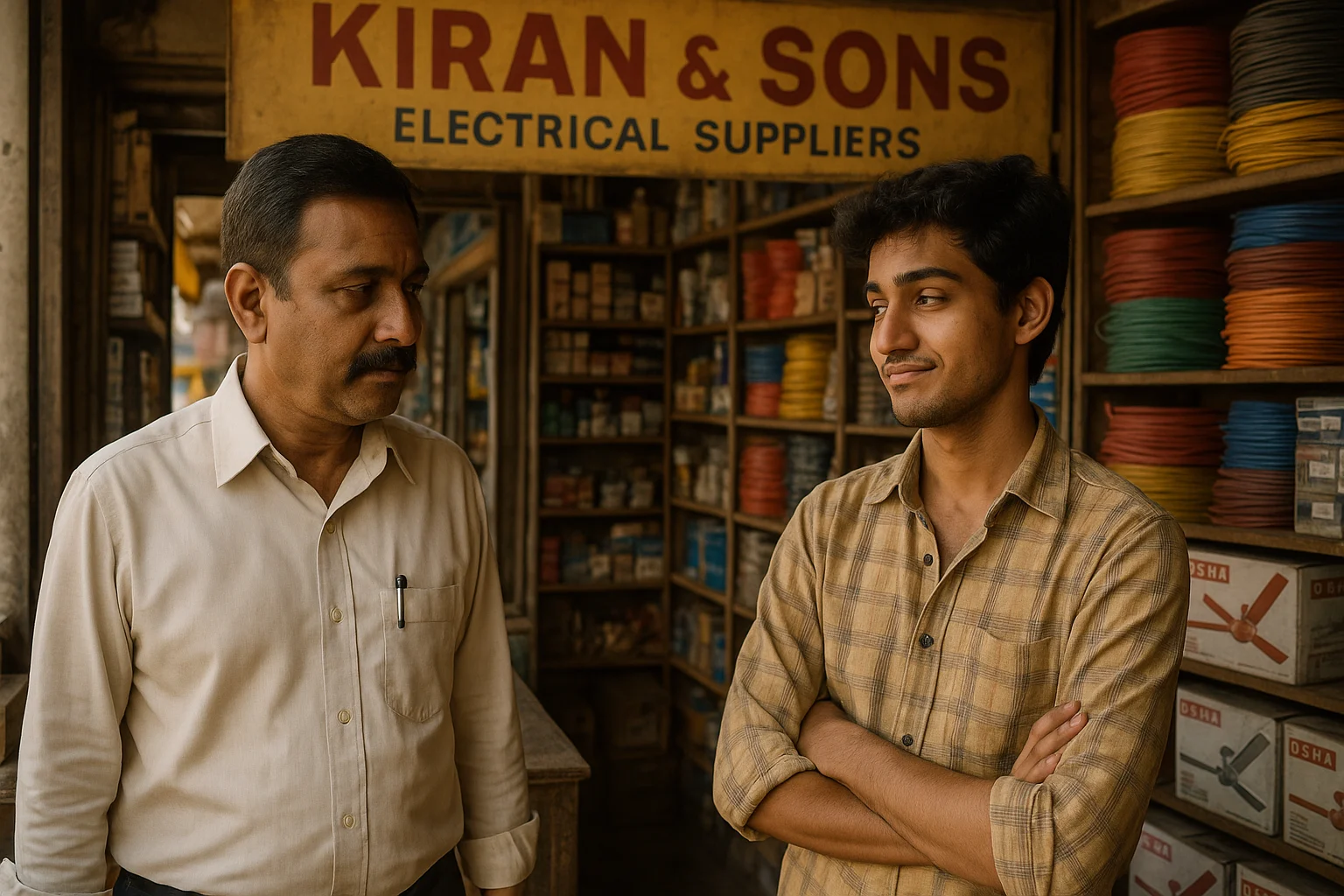In the heart of Jharkhand, nestled amidst red soil, mango groves, and whispers of prosperity, lived Mohanlal Tibrewal—a man born into legacy and wealth. His father, Hariprasad Tibrewal, ran a well-established hardware and cement business that was the pride of Basaria town. But while Hariprasad lived modestly, he also lived freely—celebrating festivals, helping the poor, and teaching his son the value of savings with an important caveat: “Save, but never at the cost of life.”
That last part… Mohanlal never quite understood.
From the day Hariprasad passed away in a sudden cardiac arrest during a mild winter morning, Mohanlal changed. At just 27, he took over the reins of the Tibrewal firm. The business, already thriving, flourished further under his disciplined management. Profits soared, properties were bought, and bank accounts thickened. But as money entered the house, light, color, and joy quietly tiptoed out.

Mohanlal began to live with an obsession: saving.
His philosophy was simple:
- No new clothes unless the old ones are torn beyond stitching.
- Food should fill the belly, not the soul.
- Happiness is optional, investment is mandatory.
Even his home resembled a pre-independence structure—dull green walls, cracked window panes, and fans that hummed like they were sighing in pain.
His wife, Malti, once a bright woman who loved listening to Vividh Bharti and applying mehendi, gradually transformed. She now rationed sugar in her tea, stitched the same blouse repeatedly, and used neem twigs instead of toothpaste.
Their son, Gagan, was the third echo of the Tibrewal mantra: “Save. Always save.”
When neighbors joked about how Mohanlal’s kurta had probably seen both the Indo-China and Indo-Pak wars, he simply smiled and replied, “At least it survived. Can your branded shirt promise that?”
Everyone in Basaria respected his business acumen but pitied his family’s existence.
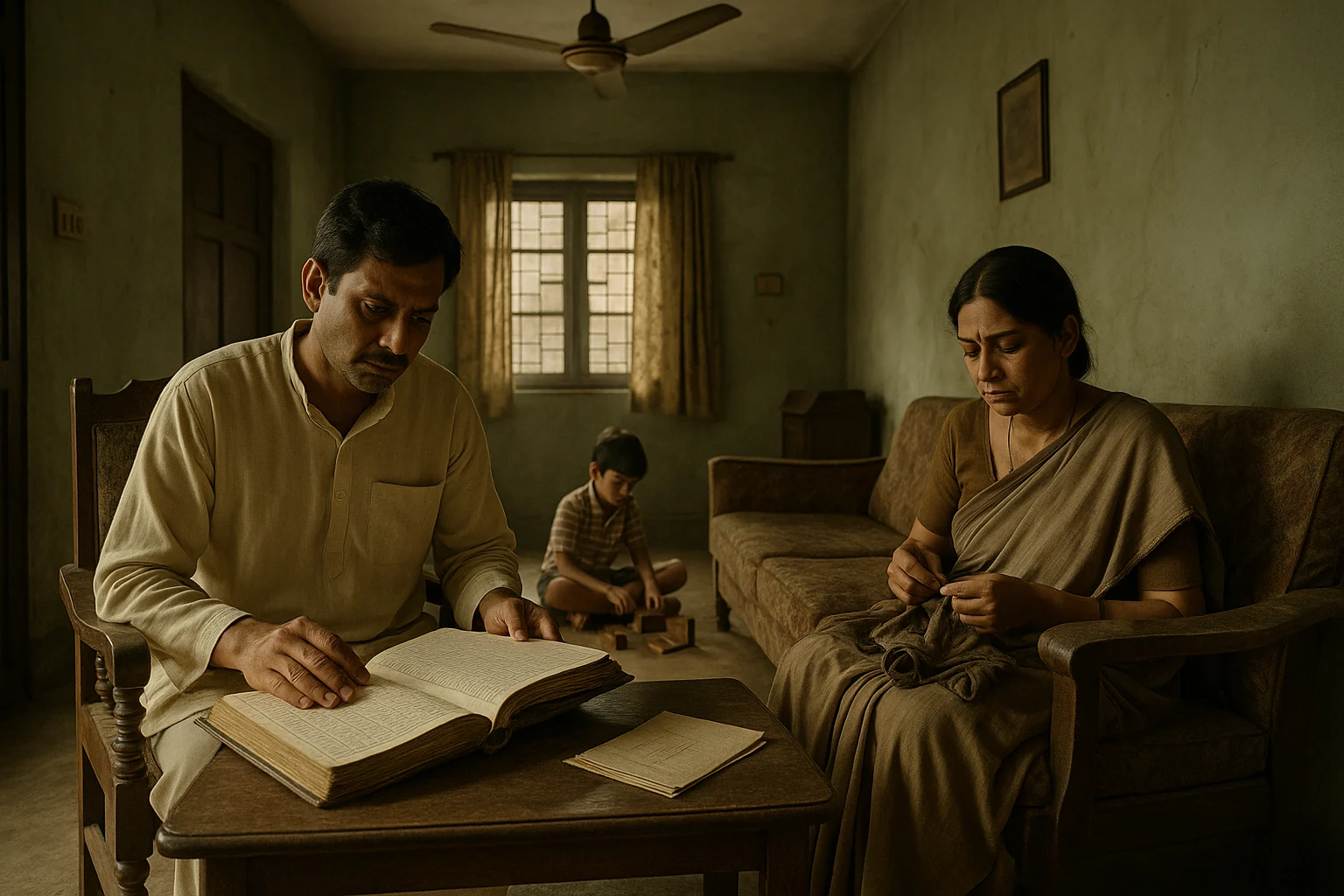
The Breaking Point
One monsoon evening, Malti collapsed in the kitchen. A neighbor’s son rushed over and helped carry her to the local government hospital.
“Uterine complications,” the doctor said. “Needs a surgery. Best if done in Ranchi at a private facility. Not available here.”
The doctor’s words echoed in the air-conditioned hallway. Mohanlal tightened his grip on his worn-out jhola and asked, “How much will it cost?”
“Roughly fifty to seventy thousand, including stay and post-op care.”
Mohanlal gulped. “Let’s wait. If it’s God’s will, she’ll recover here too.”
Malti, semi-conscious and in pain, was kept under observation. No private nurse. No proper post-care nutrition. Her face grew paler each day, her voice thinner.
After eleven days, she passed away.
“God’s will,” Mohanlal told everyone. Even Gagan nodded, “Whatever happens, happens for a reason.”
But the women in the neighborhood cried more than the family. And they whispered, “He let her die with money in his safe.”
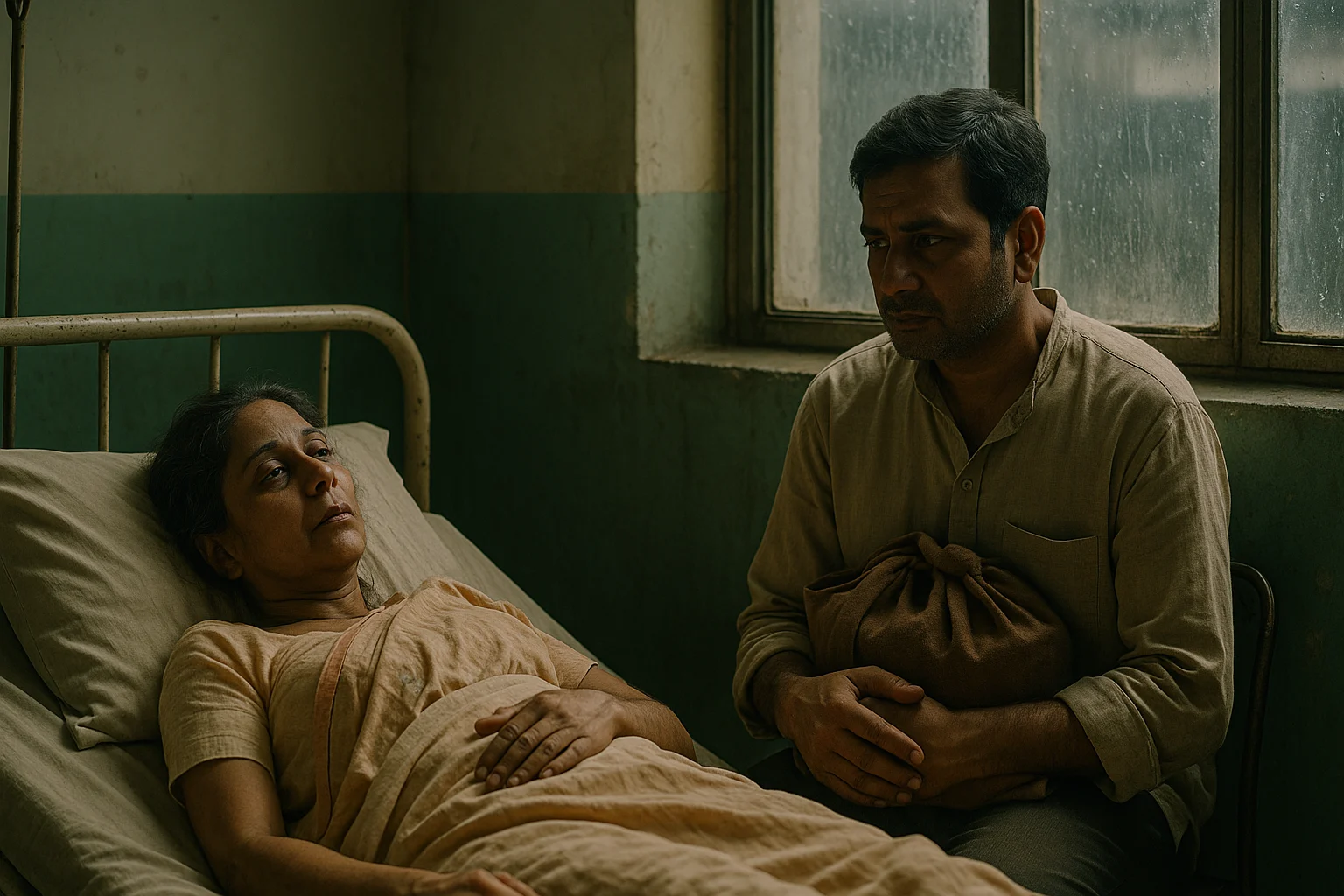
The Mirror of Karma
Years passed. Gagan, molded by his father’s iron ways, joined the family business. He never married—“Weddings are expensive.” He didn’t renovate the house—“Whitewash is enough.” He treated the help poorly—“Why pay extra for loyalty?”
Then one winter, Mohanlal caught a cold.
It wasn’t alarming at first. But the cough persisted, and his legs weakened. A visit to the same government hospital revealed vitamin deficiencies, fatigue from aging, and a need for a protein-rich diet, rest, and specialized medications.
“Give him almonds, dates, eggs, fruits, energy powders—he’ll recover,” the doctor suggested.
But at home, the same watery dal, two rotis, and one boiled potato graced his plate. “Doctor ne dikhaya toh dikhaya, khilana toh ghar mein hai,” Gagan said with a chuckle.
The town doctor met Gagan on the street one day. “Mohanlalji helped build half of this town with his supplies. Why not spend a little on his comfort?”
Gagan replied coldly, “He never did that for Ma. Why should I?”
Soon, Mohanlal’s speech slurred. He stopped attending the shop. He stared at the ceiling fan as if waiting for the spinning to stop.
One morning, he didn’t wake up.
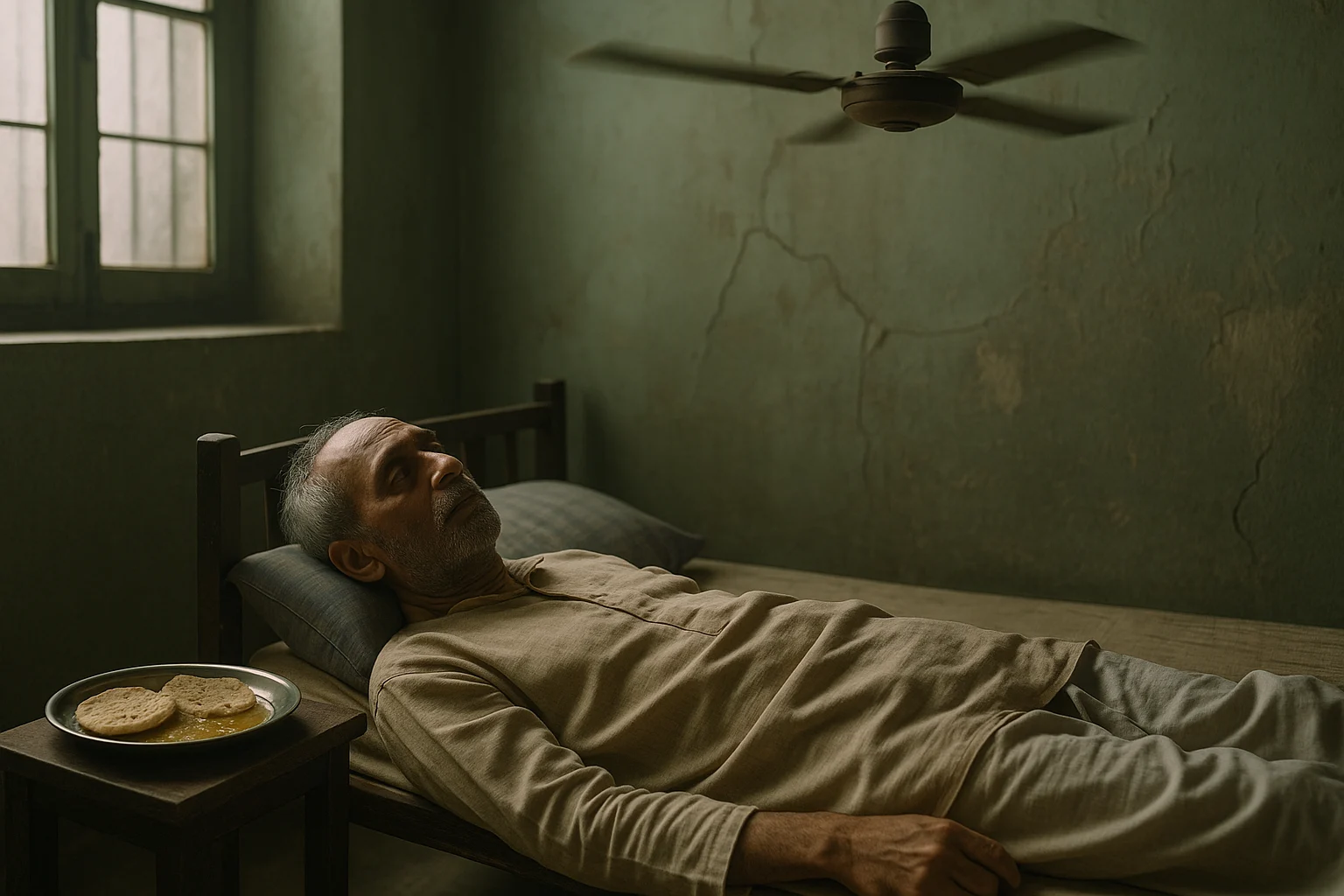
The Legacy Left Behind
The funeral was quiet. Businessmen came, bowed, and left quickly. The local MLA offered condolences with a subtle jab: “A man who owned so many homes died without enough warmth in his own.”
Gagan inherited everything. But he had no one to talk to. No wife. No friends. No children. Just properties and passbooks. A room full of keys but no doors to happiness.
The local newspaper wrote a column:
“Mohanlal Tibrewal, the man who bought lands but never landline, owned cars but never travelled, and built wealth but no will to live.”
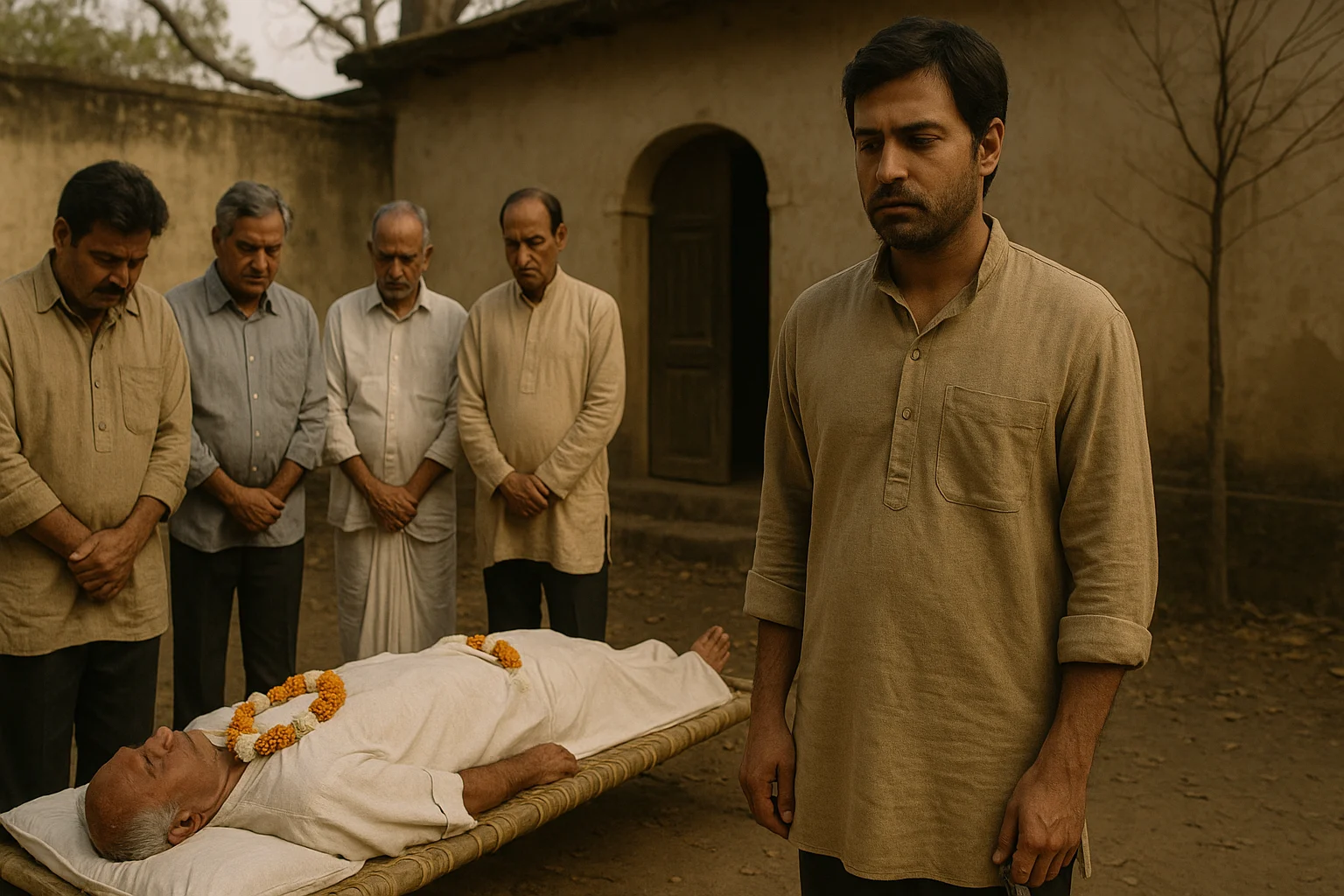
A Visitor’s Lesson
Months later, a young CA from Ranchi came to collect documents for property tax. After wrapping up, he asked, “Sir, I hope I’m not overstepping, but why do you live like this? You have everything.”
Gagan offered a tight smile, “We live simple. Papa taught us so.”
The CA paused, then said gently, “Sir, saving is wise. But money unused is like medicine never taken—it won’t save you when needed.”
That night, for the first time in years, Gagan opened his mother’s old steel trunk. Inside were her wedding bangles, some family photos, and a letter she had written but never given him.
“To my son Gagan, if you ever read this—learn to live, not just save. Even God doesn’t count your money, only your deeds.”
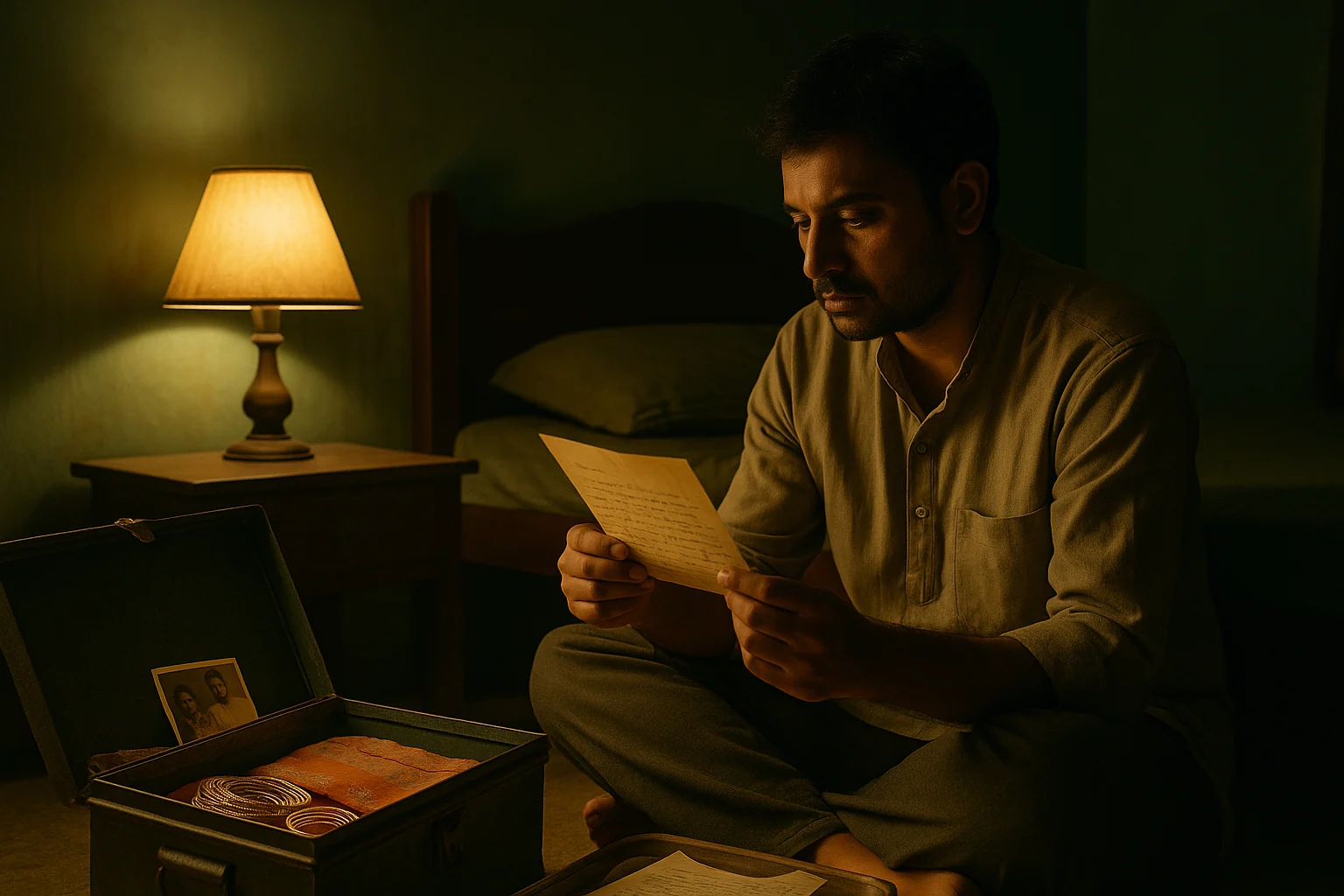
Moral:
Wealth is a means, not the purpose. A miser’s empire may be built with bricks, but it collapses in moments when love, care, and courage to spend are absent.
Receive Stories and Articles in your Inbox!
We won’t send any promotional or spam emails.
